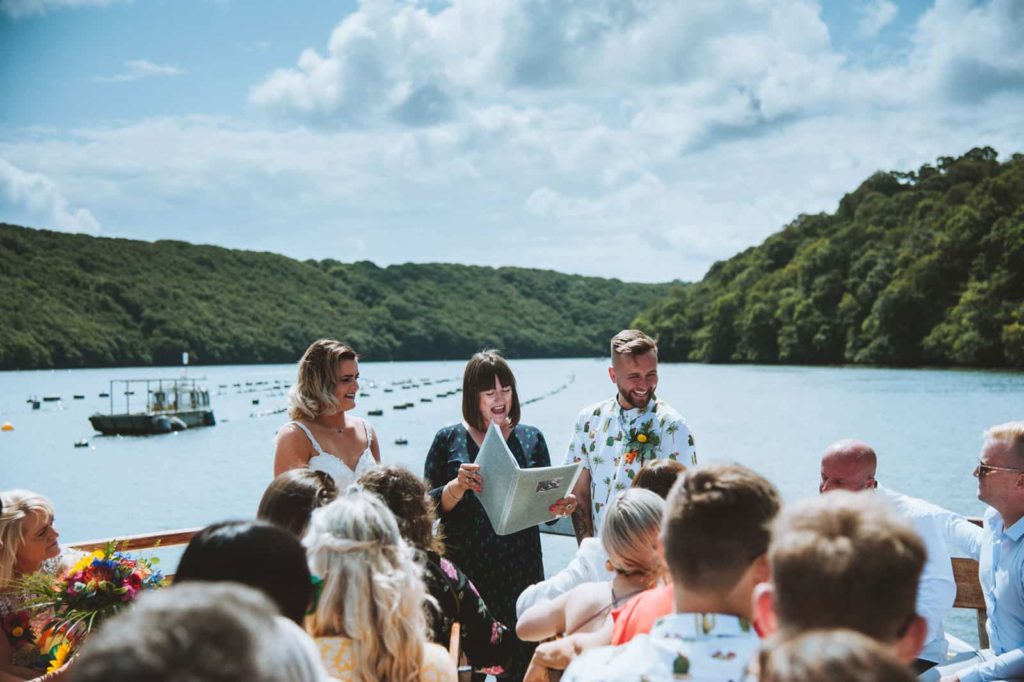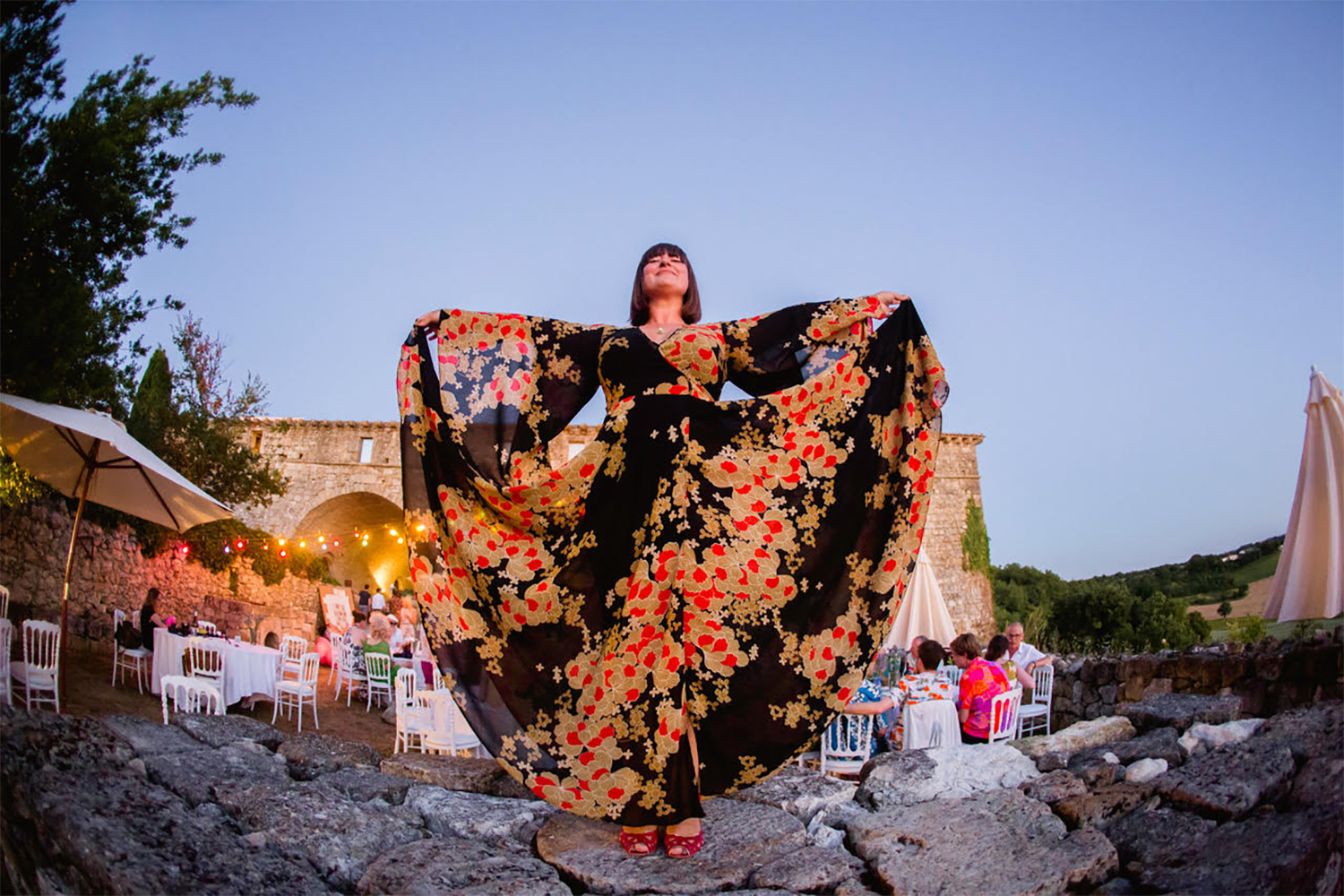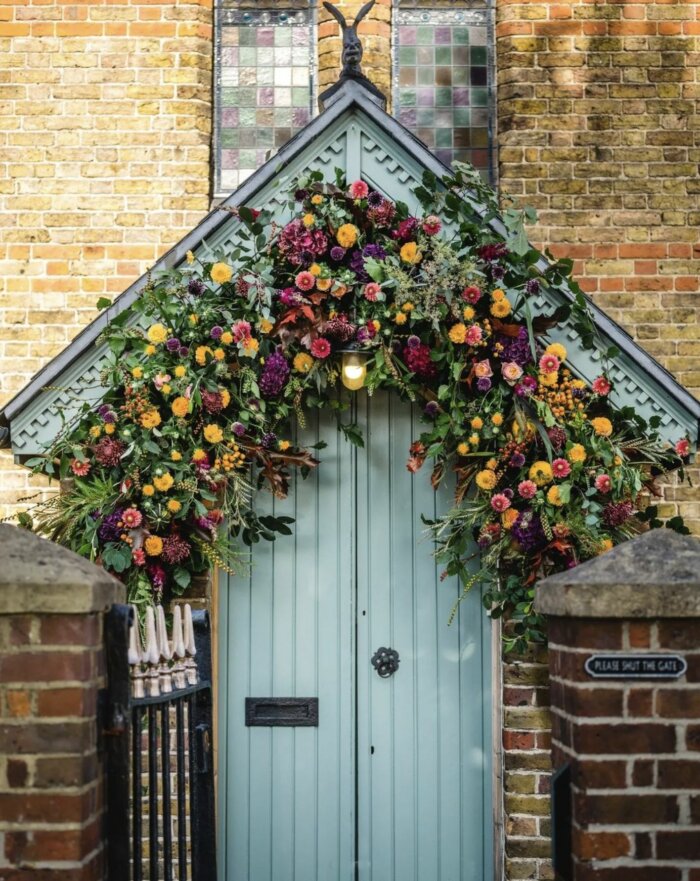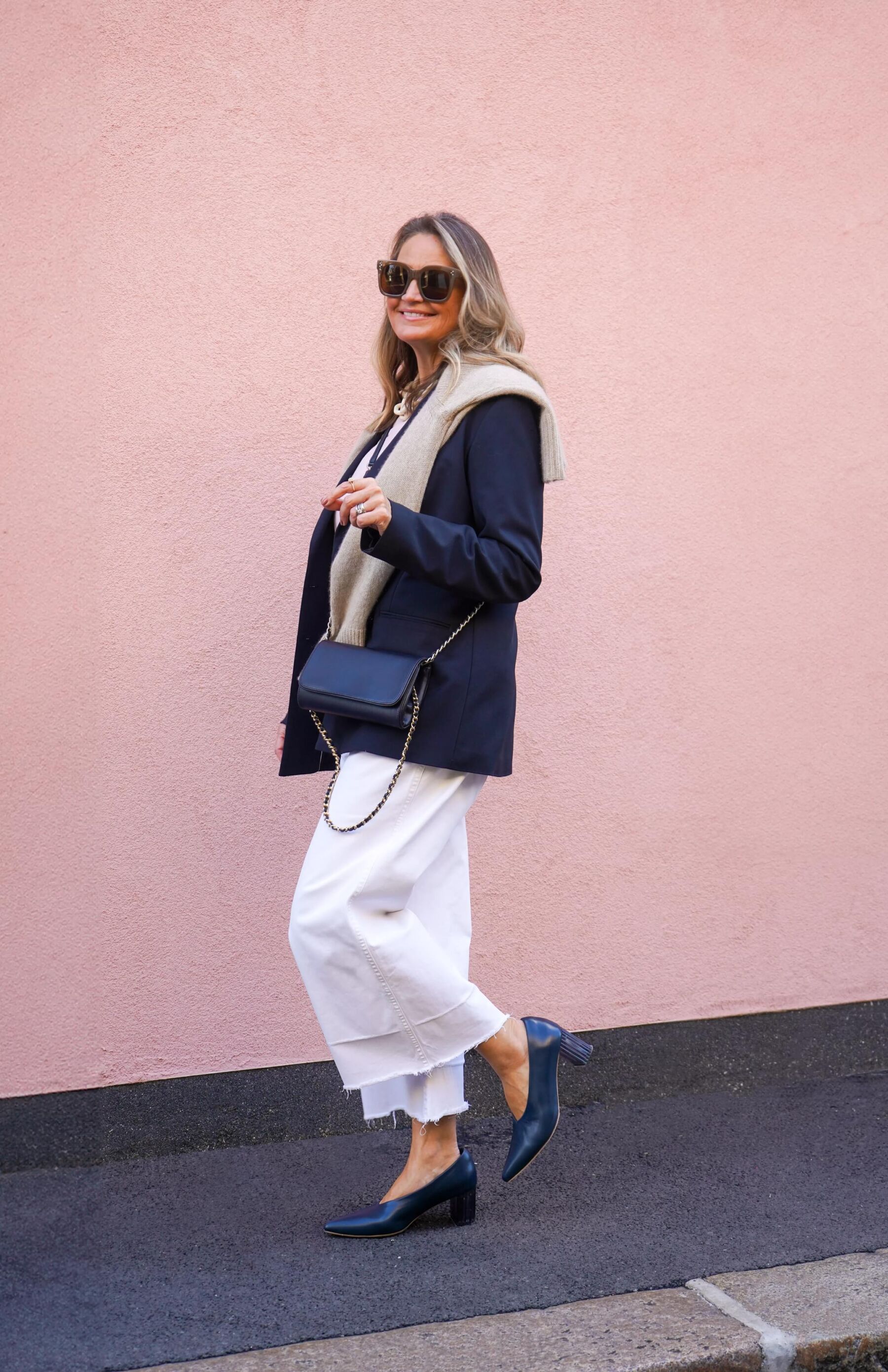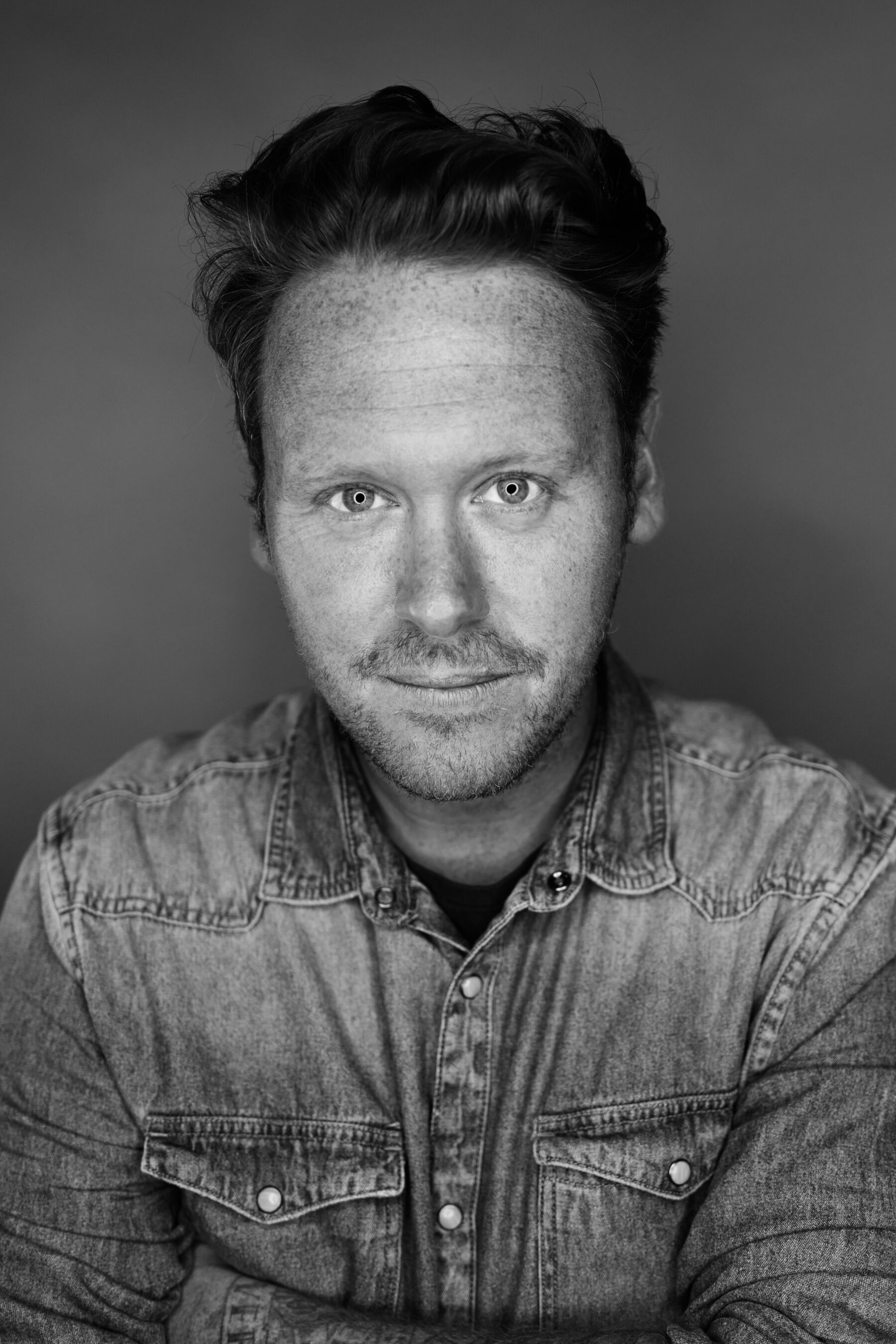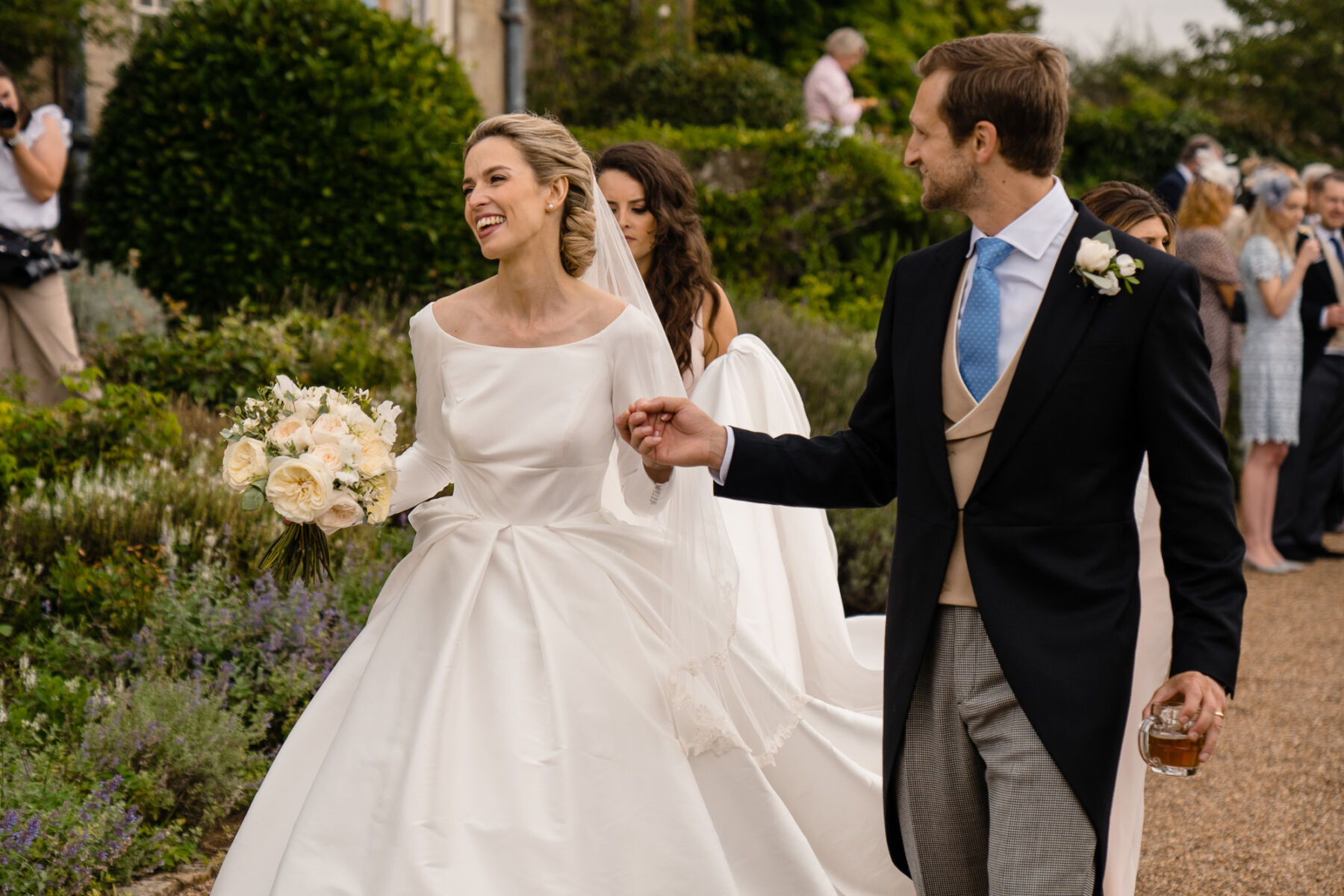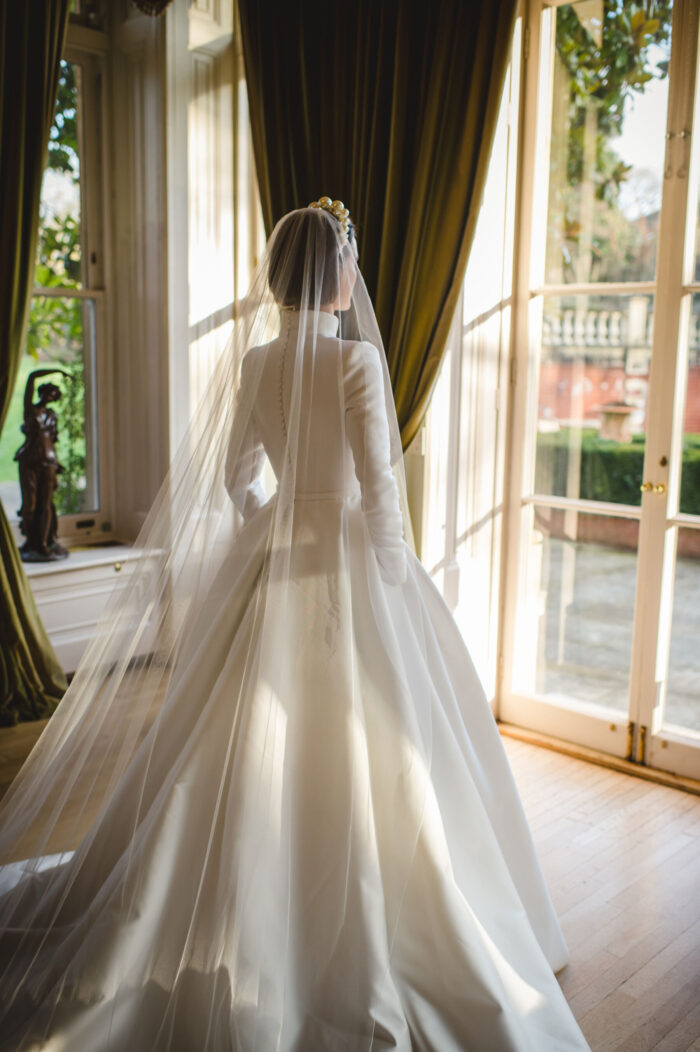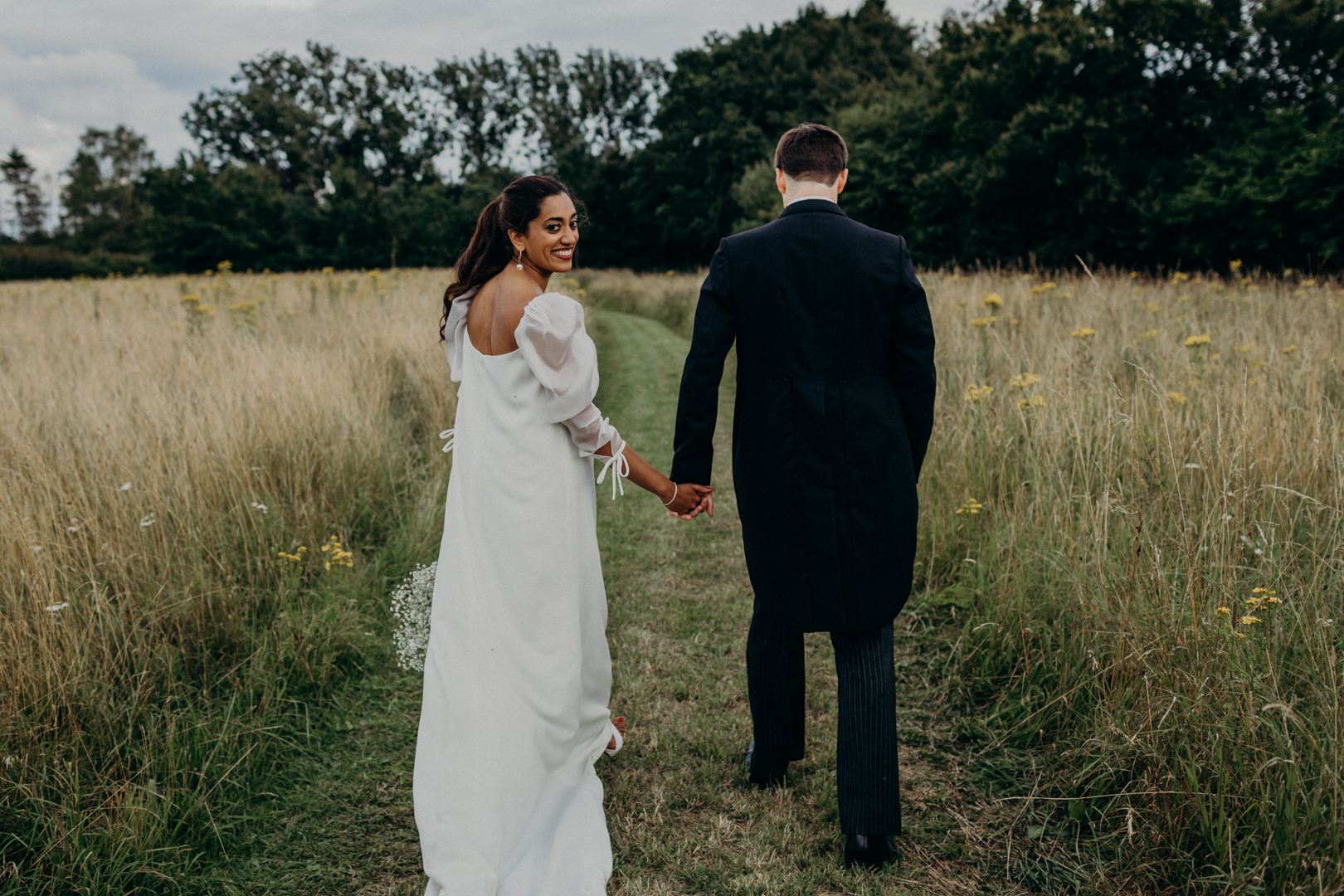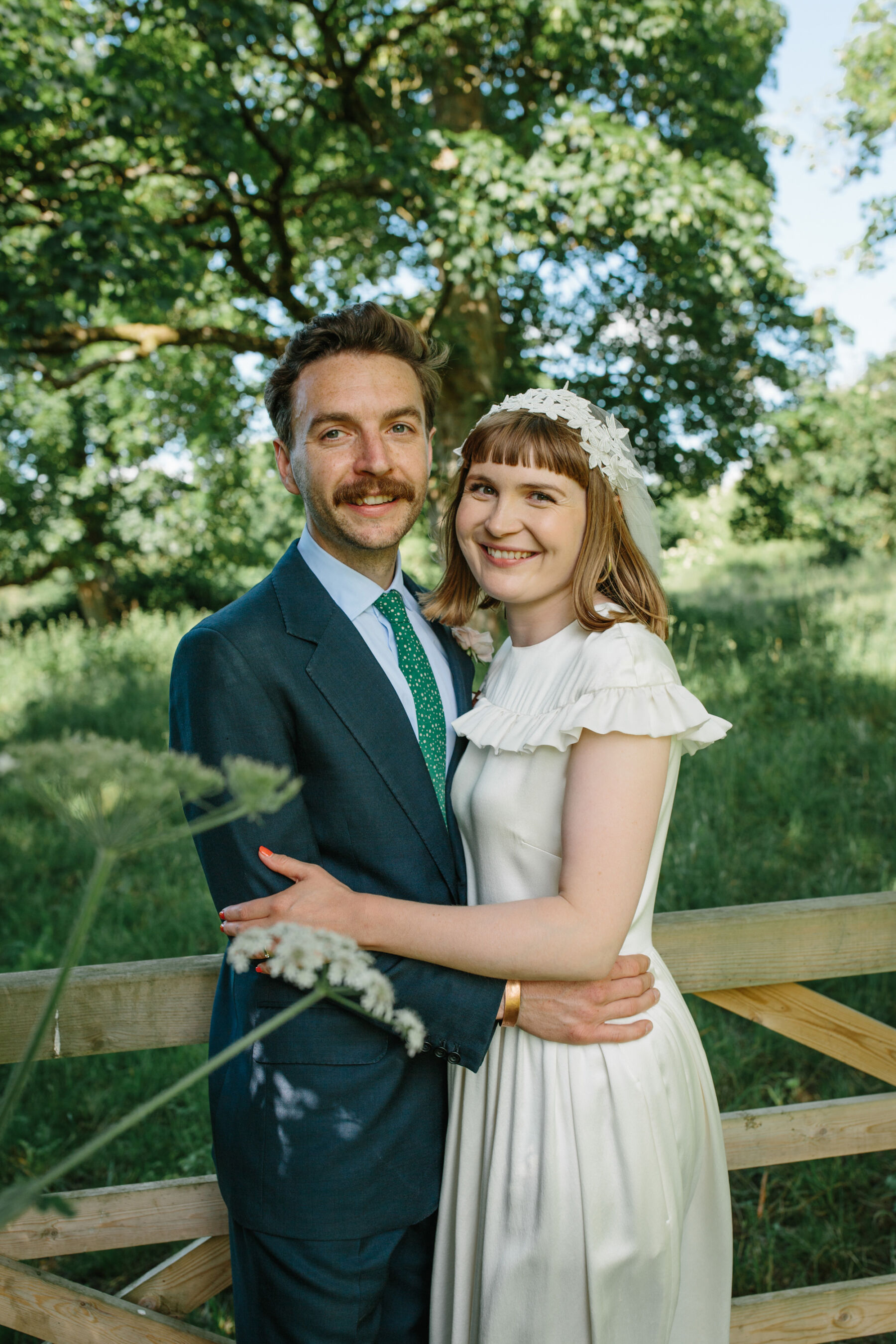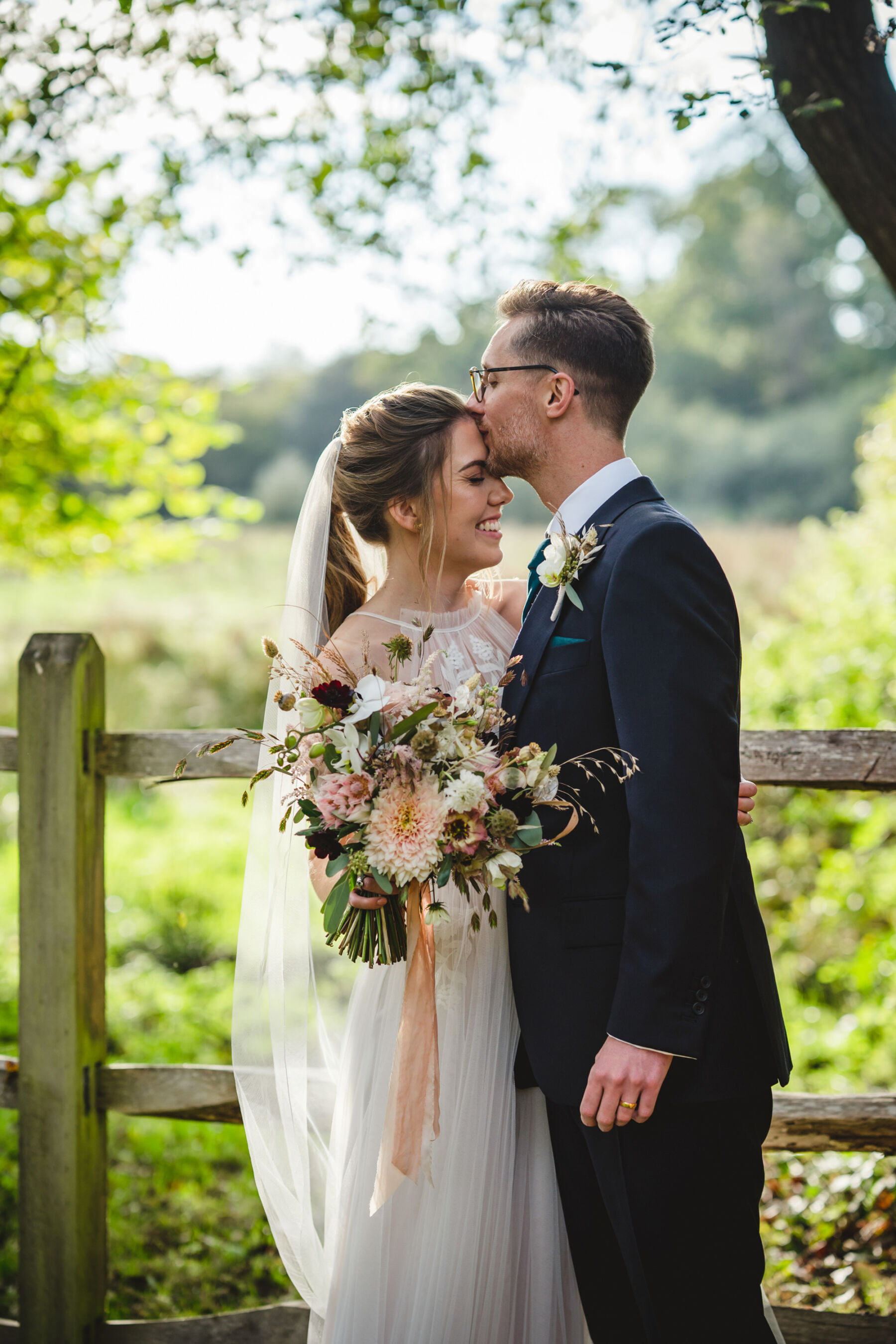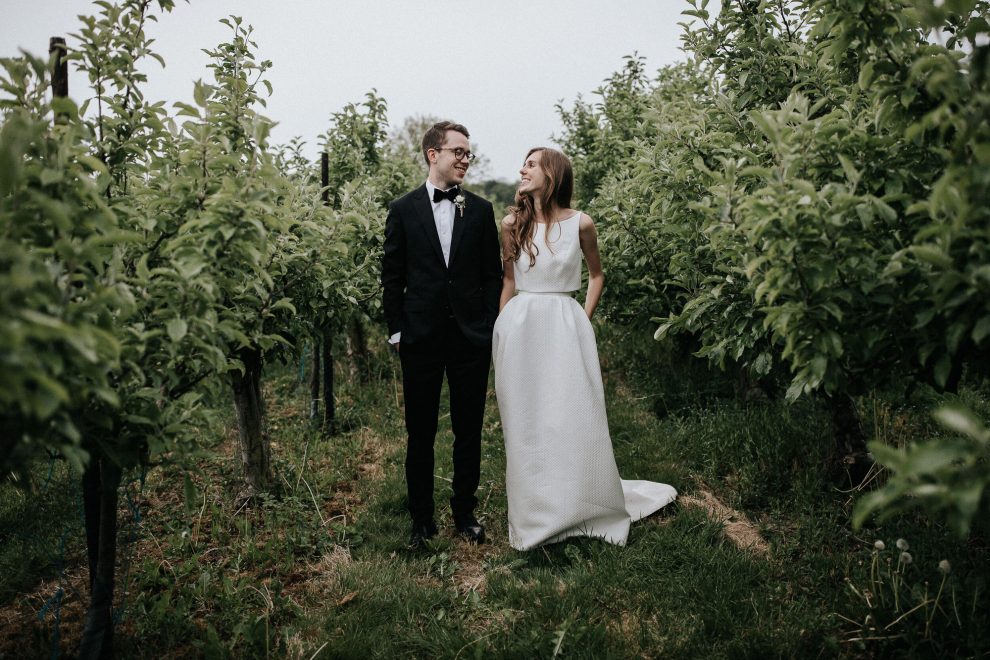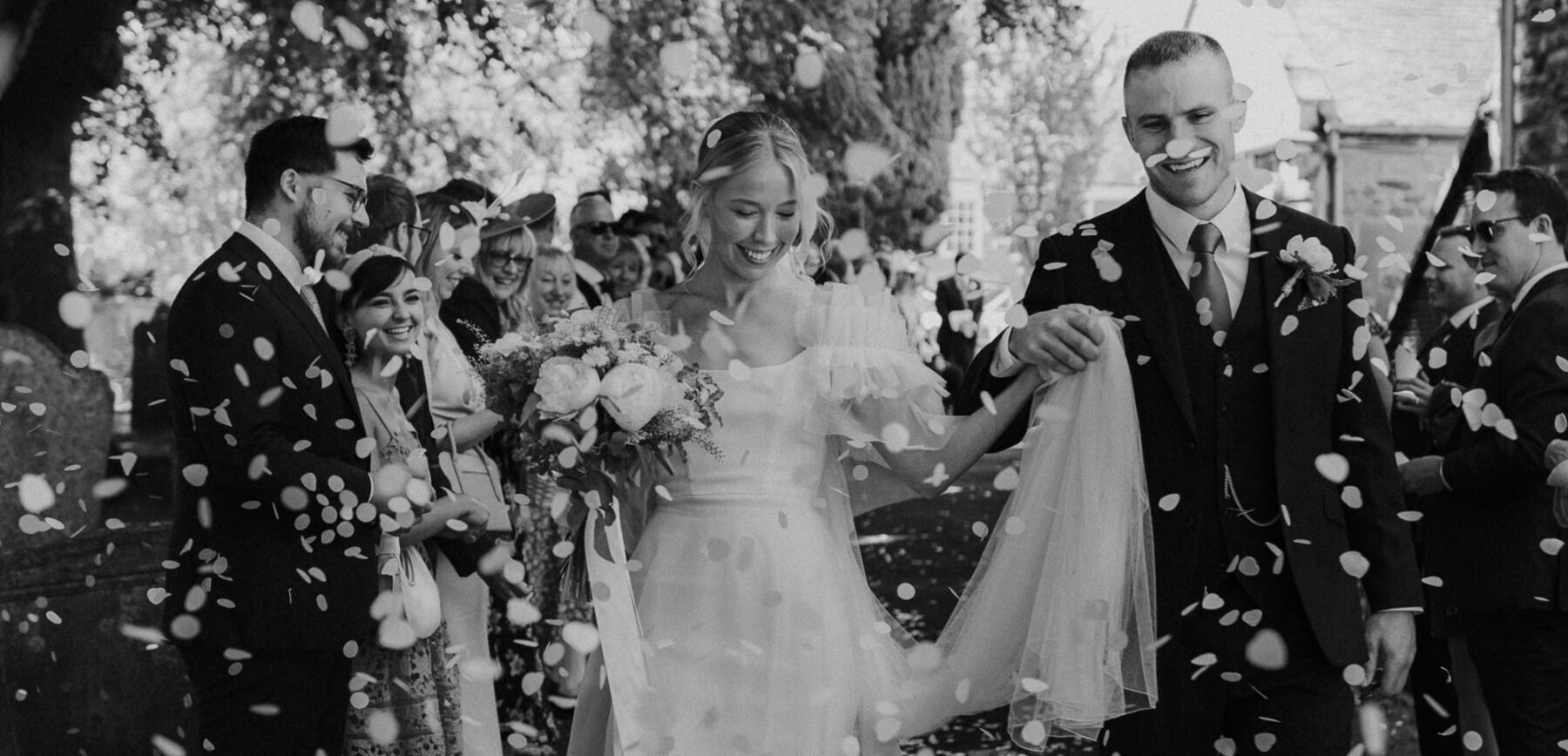My guest in Episode #6 of The Love My Dress Podcast is Zena Birch, a Humanist wedding celebrant who goes beyond the ordinary and whose life mission is to inspire others to chose love in every aspect of their lives.
Zena’s is one of those people in life whose spirit shines especially bright. She effortlessly exudes love and warmth in everything she does and everywhere she goes.
TRIGGER WARNING: Please note, this episode explores the issue of grief, a road traffic accident and loss of a sibling during childhood.
Zena’s path to becoming a celebrant was forged through deeply personal experiences that have left an indelible mark on her soul. In moments of profound tragedy, unimaginable loss, and the power of forgiveness, she discovered firsthand the transformative nature of love.
Through these experiences, she witnessed love’s ability to heal wounds, forge connections, and imbue our lives with indescribable joy and treasured memories.
As a Humanist celebrant, Zena treasures the belief that love transcends boundaries and should be celebrated in a way that is authentic and profoundly meaningful to each couple.
Her approach is rooted in inclusivity, embracing the beautiful diversity of love and the countless ways in which it manifests itself in our lives. She believes that love has the power to dismantle prejudice, ignorance, and despair.
With a compassionate heart and an unwavering commitment to her craft, Zena infuses her ceremonies with tenderness and an enchanting touch that is uniquely hers – I like to think of it as Zena magic. Zena has an innate gift for creating a safe and sacred space where couples can freely express their love, allowing their individual narratives to unfold in all their beauty.
My dear listeners, prepare to be inspired as we dive into the world of love, celebration, and the remarkable journey of Zena’s life and career.
zenabirch.com
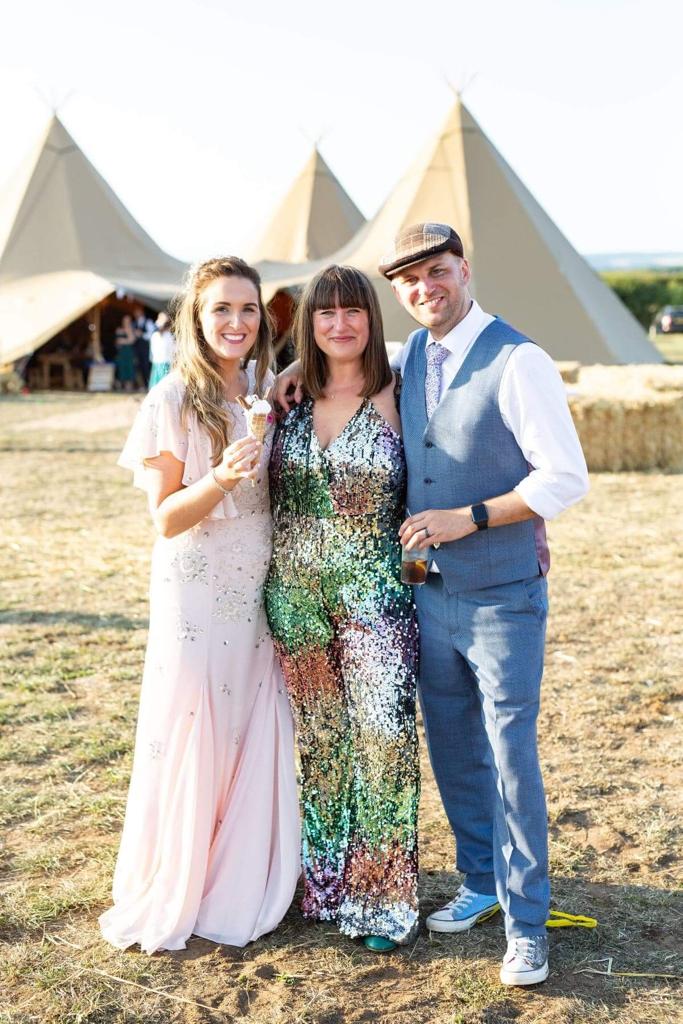
Please Follow, Rate & Review The Love My Dress Wedding Podcast
Countless hours of dedication and passion have been poured into producing this podcast. Created from the heart, The Love My Dress Podcast aims to provide a welcoming sanctuary not only for those deeply involved in the wedding industry but also for couples planning their weddings, individuals with a general interest in entrepreneurship, and anyone seeking a refreshing departure from conventional wedding planning content.
Please kindly take a moment to subscribe to The Love My Dress Podcast via Spotify or Apple and leave a short, friendly review or rating. These small actions will take seconds, but will make a huge difference.
I am so grateful for your support, thank you so much.
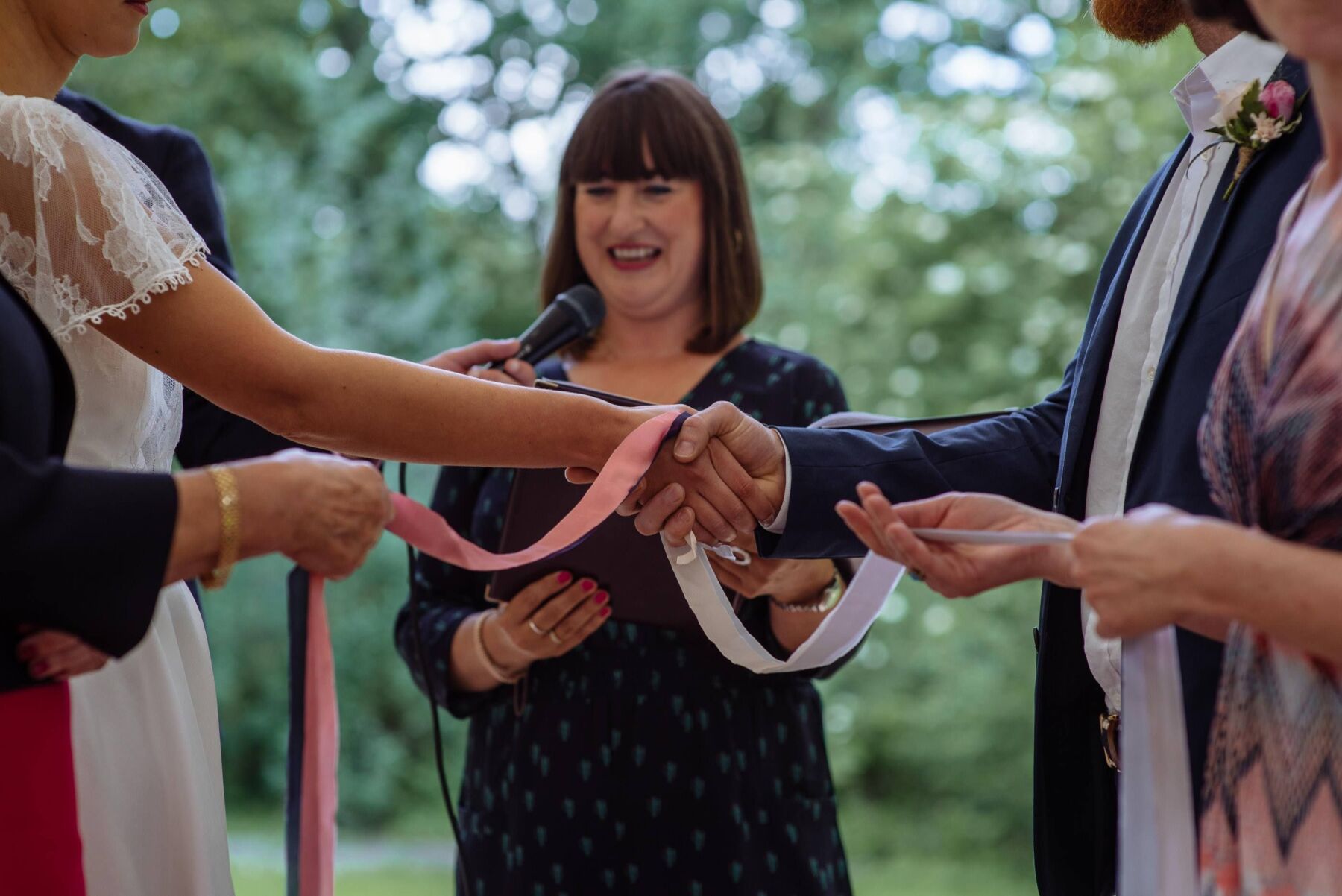
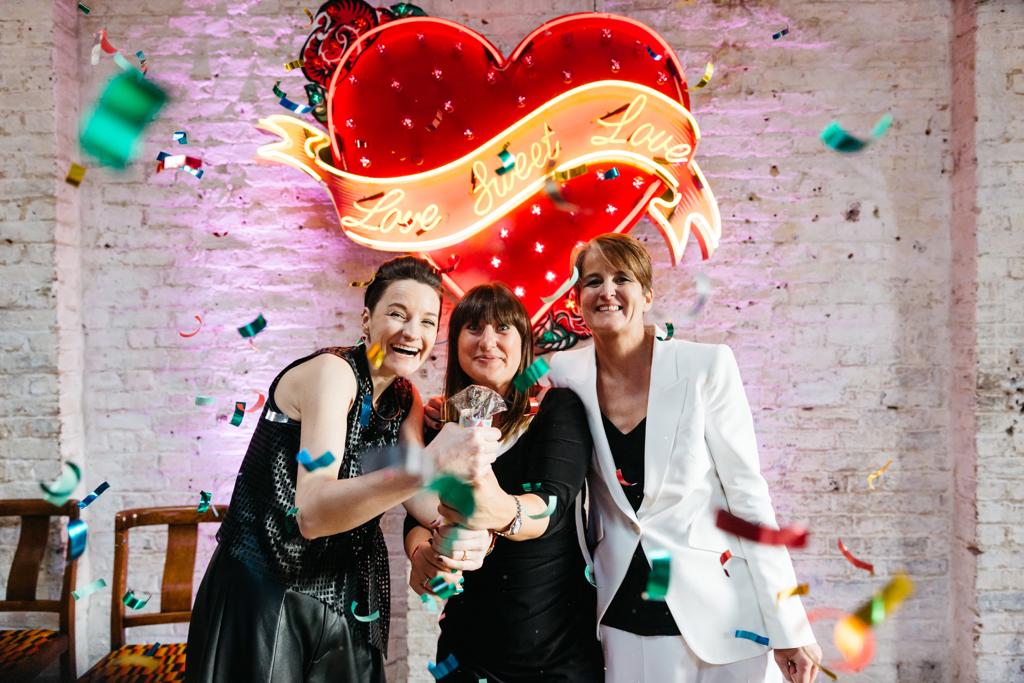
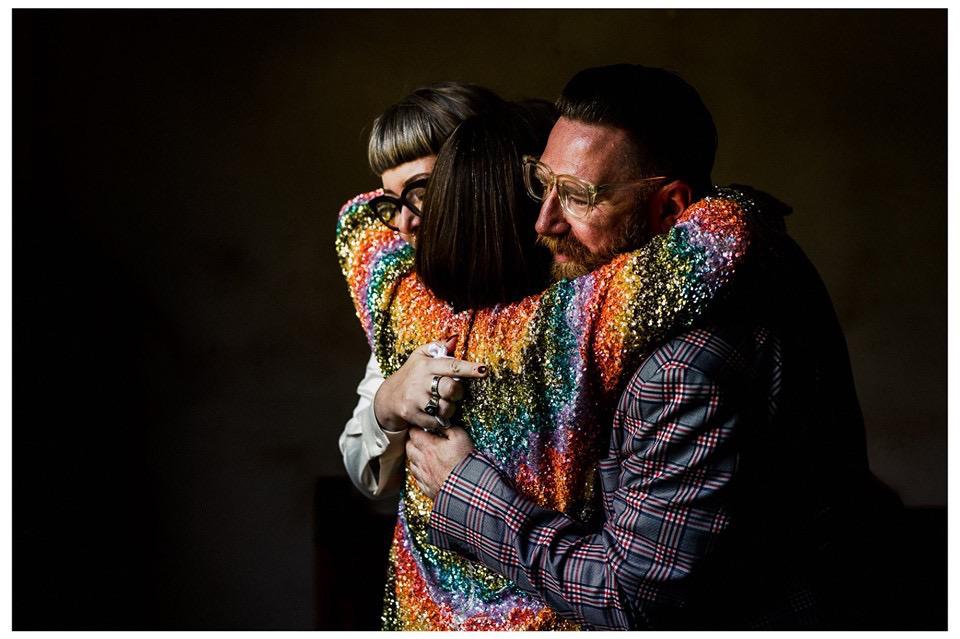
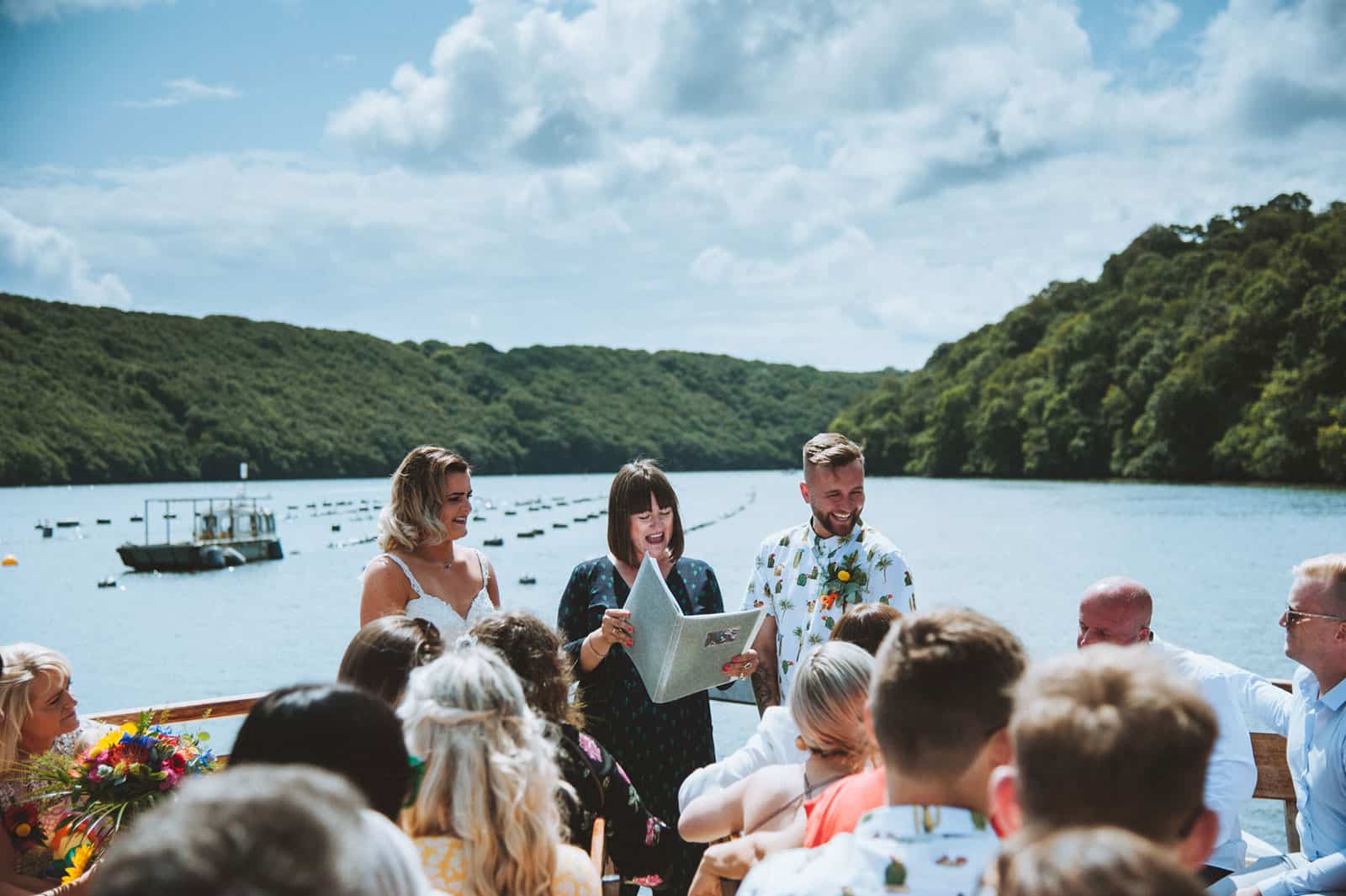
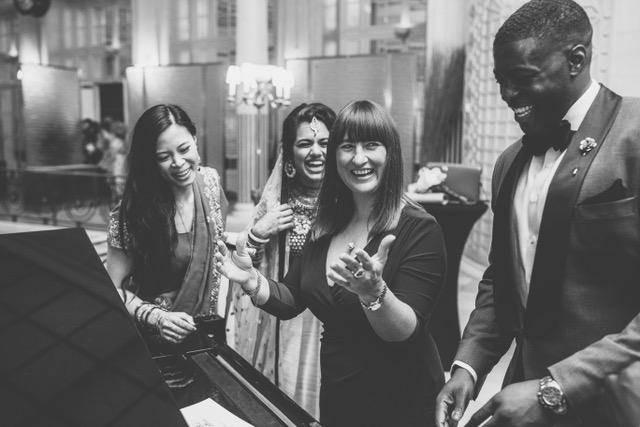
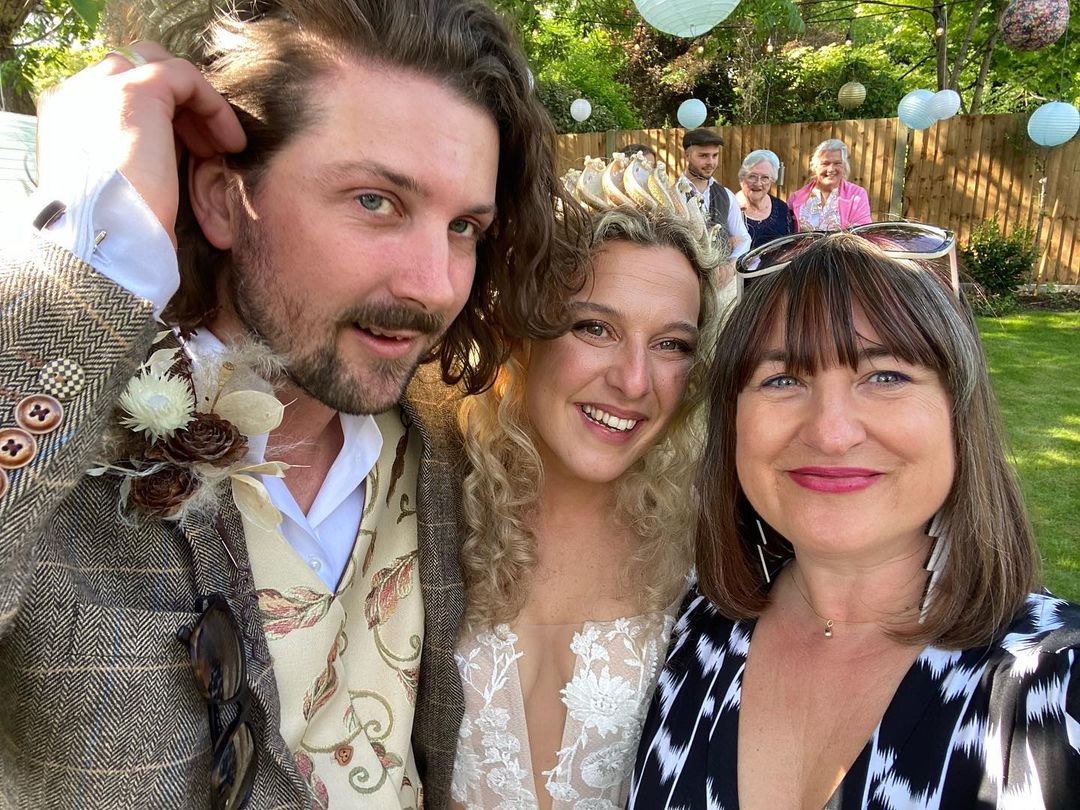
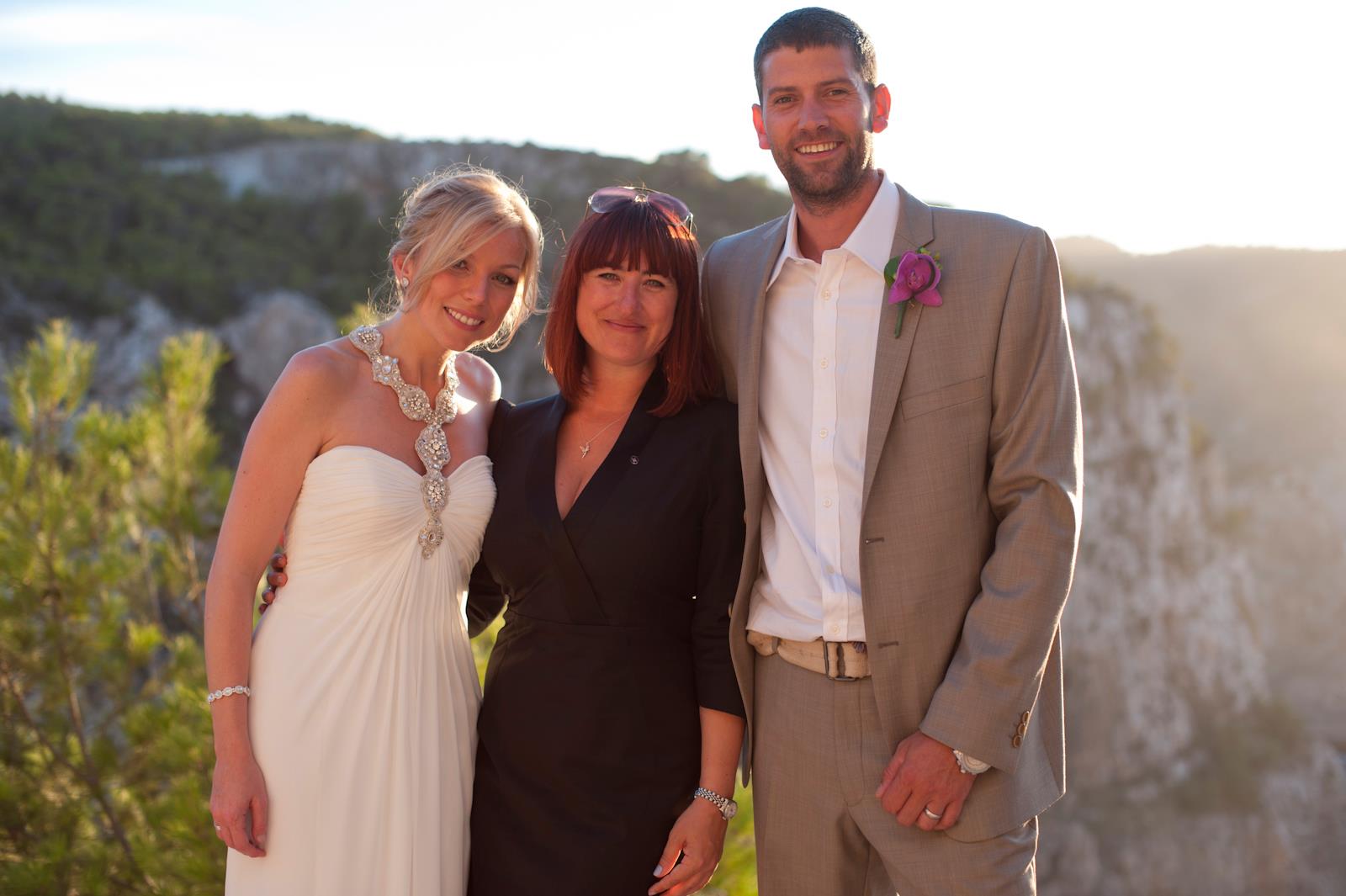
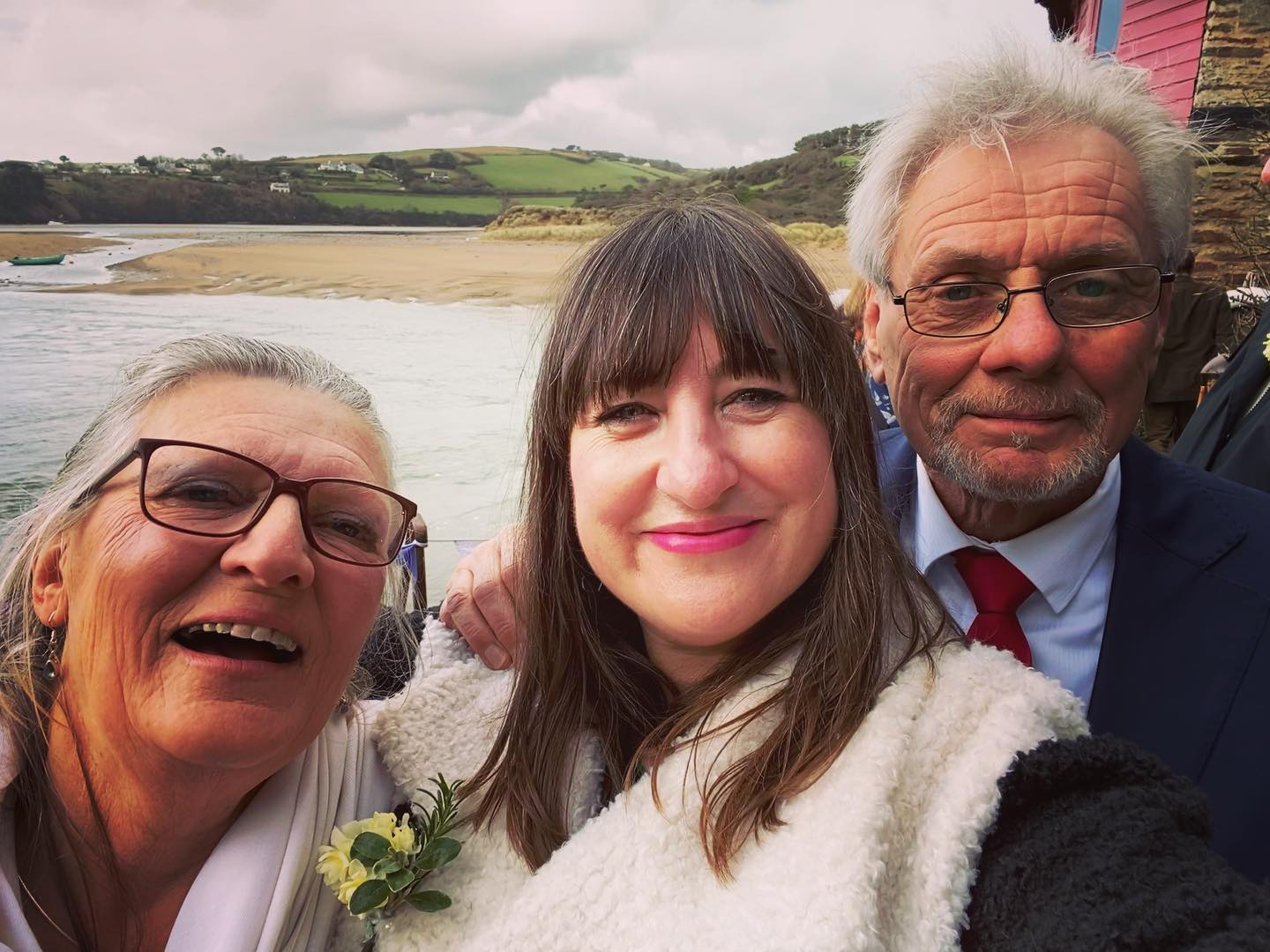
Podcast Transcript
ANNABEL BEEFORTH (HOST)
Welcome to the Love My Dress podcast.
I’m your host and founder of Love My Dress, Annabel Beeforth, and I’m so thrilled that you’re here.
This podcast is a tribute to the world of weddings and the people who make them happen. It has been created for anyone planning their wedding, for all wedding business owners, and anyone interested in the world of creative business entrepreneurship. Whether you’re deeply involved in the wedding industry, on its periphery, or just generally curious.
In each episode, I’ll be engaging in conversation with inspiring business owners, and exploring topics from weddings and business, to personal life experiences that have shaped the careers and lives of my guests.
I feel a very strong sense of purpose for humanising the wedding industry and revealing the incredible creative talent that thrives within it. In today’s fast-paced tech-dominated world that we are all navigating, I also feel a profound desire to encourage slower, more meaningful consumption of digital content.
I’m passionate about storytelling and creating spaces where others can share their stories freely and authentically. Stories are the universal currency of our communication. They weave invisible threads that connect us all on a human level, that help us to understand better, foster kindness, compassion and empathy. They spark ideas and inspire us to do new things. So storytelling is very much at the heart of this podcast.
If you enjoy listening to this conversation, please take a moment to leave a friendly rating or a view. Your support and feedback really means the world and makes such a difference. And now it’s time to introduce my latest guest.
My guest today is Zena Birch, a humanist wedding celebrant who goes beyond the ordinary and whose life mission is to inspire others to choose love in every aspect of their lives. Zena is one of those people in life whose spirit shines especially bright. She effortlessly exudes love and warmth in everything she does and everywhere she goes.
Zena’s path to becoming a celebrant was forged through deeply personal experiences that have left an indelible mark on her soul. In moments of profound tragedy and unimaginable loss and the power of forgiveness, she discovered first-hand the transformative nature of love.
Through these experiences, she has witnessed love’s ability to heal wounds, to forge connections and imbue our lives with indescribable joy and treasured memories.
As a humanist celebrant, Zena treasures the belief that love transcends boundaries and should be celebrated in a way that is authentic and profoundly meaningful to each couple. Her approach is rooted in inclusivity, in embracing the beautiful diversity of love and the countless ways in which it manifests itself in our lives.
She believes that love has the power to dismantle prejudice, ignorance, and despair. With a compassionate heart and an unwavering commitment to her craft, Zena infuses her ceremonies with tenderness and an enchanting touch that really is uniquely hers. I like to think of it as Zena magic.
Zena has an innate gift for creating a safe and sacred space where couples can freely express their love, allowing their individual narratives to unfold in all their beauty.
My dear listeners, prepare to be inspired as we dive into the world of love, celebration and the remarkable journey of Zena’s life and career. Zena, a very warm welcome to the Love My Dress podcast. Thank you for having me and thank you for that extraordinary introduction, which has
ZENA BIRCH (GUEST)
Well thank you for having me and thank you for that extraordinary introduction which has left me thoroughly blushing. Thank you.
ANNABEL BEEFORTH (HOST)
Zena, it really is my pleasure.
Now, I’d like to start this conversation by learning about your pre-celebrant life, and I’m especially keen to learn what led you to embark on the path of becoming a humanist celebrant. I mean, were there any earlier indicators? Perhaps let’s take it back to your childhood, and I’d like to ask you, what was it like growing up?
ZENA BIRCH (GUEST)
I grew up in a kind of little village, had a village primary school. My mum and dad divorced when I was five. So for the first part of that it was my brother and my mum and I. And I guess I was just really lucky in that I always knew that I was loved. And I think a lot of the time people ask, you know, what it’s like to be the parents of divorce and I think so long as you knew that you were always loved by both parents, actually, it doesn’t have to be as damaging as you think. And sometimes it can even have some positive effects.
But I grew up being encouraged to dance because I wouldn’t sit still and I loved it. So I probably took up most of my spare time doing ballet or tap or modern or jazz or singing and dancing with the brilliant Mrs Stockwell, who was our piano player at our village hall dance class and the best thing about her is she’s introduced me to all these old musical songs, songs that told stories.
So I think the reason I’m probably starting there is because storytelling feels like it’s been forged from the very get-go in my life and the way that I’ve understood how we interact with one another, how we empathise with one another, how we connect with one another. I mean, it’s easily one of the oldest forms of human, both entertainment, education, understanding.
And I think being able to be, I think I was always quite aware as well that storytelling wasn’t just the thing that happened when you went to bed and, you know, it was, are you sitting comfortably and then we’ll begin. Storytelling happened through music, storytelling could happen through songs, through dance, through watching what’s unfolding in front of you. It’s not just the sort of classic verbal tradition or written tradition that we think.
So, and I also grew up in a fairly big family, cousins, aunts, uncles, all of whom love to get together and talk, you know, really talk with each other. We didn’t sit in separate rooms not knowing who was there. We all came together and played games, parlour games.
Goodness me, this is sounding now like I grew up in the Victorian era. I didn’t, but that was definitely, like I come from a very working class family and I do think that actually that kind of sense of structure and tradition, which I guess we’ll probably touch on a little bit later on, was also quite important.
You know, New Year’s Eve always involved everybody and go out on the street, everyone would gather hands and sing and then come back in and the person who was the darkest would carry in a piece of coal. Like, all these things we didn’t really question where those traditions or rituals or symbolism came from, but they were innate and integral to, I guess, the understanding of my childhood.
And then I went to just a regular secondary school, good old fashioned comp and had, I’d say, a pretty decent time of it. I was really bullied, in fact, I was really bullied from about 8 to 16, and at the time, I think I thought it was the worst thing in the world. And as you get this wonderful scope of movement away from your youth and your pie chart of experience grows, so things that seemed so enormous at one point and now just a slither in the grand scale of things, you know, it was unpleasant, but it was also something I totally got through.
And two of my best friends today are people who I met at school, and that’s not always the case and they were real rocks in my world and still are scandalously, magnificently, naughtily brilliant and long may that continue.
So I left school desperate to keep telling stories. I did English and History at Goldsmiths University, a joint BA honours, and took up theatre at the same time. So I realised that I wasn’t going to be the ballerina I’d hoped to be. Two reasons why. The first was I went, I did get accepted to the Royal Ballet Summer School when I was 11, but I found eating tissue paper, which I certainly don’t say is what all ballerinas do, but it certainly was something that happened in our dorm room, was not really for me and because it was a summer school, there were boys and girls there, and the boys I’d met had told me that if I met them at a tree at midnight, we’d eat maltesers because they had a box of maltesers. So we climbed a tree and I had a box of maltesers with two of the boy dancers, and I got caught. And then I got a matron assigned to me for the next five days of the rest of the summer school.
So I think I probably then realised that maybe ballet wasn’t going to be for me. But then I also developed boobs when I was 18. And I think that would have really, really put pay to something I’d spent a lot of time trying to go after as a dream. So I’m glad in a way that I realised that ballet wasn’t my only option of expression.
But yeah, so I started working with various different theatre groups alongside my three jobs in my degree. And that, I guess, is a whistle stop, zero to 21, with not much expansion. But yeah, there we go.
ANNABEL BEEFORTH (HOST)
So were you aware of any nudges or experiences throughout your childhood and perhaps your early adult life as well that might have been helping to pave the way for you to eventually become a wedding celebrant?
ZENA BIRCH (GUEST)
I think that it’s interesting because I’ve been a humanist celebrant now for 12 and a half years and I conducted my first wedding 13 years ago and I’ll talk to you happily in a minute about how that came about. But I certainly didn’t have any understanding of what a celebrant was before that opportunity 13 years ago.
But I do feel like an enormous amount of things that happened in my life were preparing me, not that I believe in fate or anything, but were preparing me to make this my vocation and I think when something transcends your job and becomes your vocation, it’s usually because somehow all the skills you have accrued on your way there just sit perfectly.
I had a series of instances when I was younger that probably defined how I was going to be or how I saw the world is probably the best way to put that. The most defining of which is that my brother died in a traffic accident when I was 11 years old. He was only 8 years old and it was a huge shock when you’re that age, 1 is an interesting age for things like this to happen to you because you’re cognisant enough, you’re starting to question the world, so you also have a, you’re starting to really have an understanding of who you are or the vaguest of reaches to your own sense of inner world and understanding of how you fit in.
So when something breaks the order of that, I think it’s quite a shocking age because you’re not young enough to be able to blend into the make-believe world of, oh, well, that’s just how things go, but you’re also not old enough, I suppose, thankfully, to pick up one of the many modifiers that can help you get through groups like drink or drugs or anything like that, you know, you’re just suddenly there at this stark crossroads where the real facts of life are faced in front of you, and because my brother hadn’t been sick, you know, there’d been no pre-empting of it, it was just a regular Saturday. One minute he was there, and the next minute, you know, the doorbell went and my world turned inside out and upside down. And actually that happened in a process of reveals.
First of all, it was just, oh, he’d been run over, which you don’t really get what that means properly. But generally, you just think, oh, at school when someone’s been run over, they break their leg and then your next thought is, brilliant, OK, so what will I write on his cast? That’s going to be something fun I can do. And then three hours later, at my stepdad’s mother-in-law and father-in-laws that we, me and my stepbrother and stepsister had been ushered off to. My mum walked down the, I remember it so clearly, I can see her walking down the pathway to the house and I sort of ran to the door ready to find out, you know, what kind of cast he had or, you know, all of those things and then I saw my dad, and my mum and dad had been divorced since I was five, like I said.
So I did not get for probably about a nanosecond why on earth my dad would be walking up the path and then the sinking realisation, certainly not thinking that my brother had died, but the realisation that I think I was about to learn something that my little brain up until that point had never really been able to comprehend.
And obviously a lot of the rest of my memories around that are very, very fuzzy and I do know that, you know, my sort of the story of how we understand the world definitely altered in that it wasn’t the old and the sick that died, but there’s this sense of impermanence that you will never, ever be able to completely ignore and also this incredible, and it felt, I remember it felt like, like solid metal in time, that there was no going back. There was nothing you could reverse. That you kind of grow up thinking that if you do something wrong, you can apologise. Or if something bad happens, you’ll get, you know, you could, there are things you can do to change it. And then this realisation that some things are entirely irreversible.
I remember, yeah, I remember it feeling like everything that had happened up until that moment was now trapped behind lead, I suppose and I couldn’t ever access that other side of, well that sounds dramatic, probably innocence.
I remember you and I Annabel, talked about this before, because I remember during that first lockdown, when the world felt in a way like it was running away with us all, and there was a certain element of chaos, and the horrific things in America with George Floyd had happened, and we were all so trapped and angry, and felt like we had no outlet or nowhere to go, or we were floundering with knowing how and where to go.
And I remember I wrote a post that was about a moment in my life that happened around the time that my brother died that I hadn’t probably sort of looked at quite so acutely as I was during that lockdown, which was, and I’m sure my mum won’t object to me sharing this, but what I do remember in the days after my brother died is that the house was dark, and my mum was sat in the lounge with no curtains open, just sat in an armchair.
And again, my childhood memory of this may have turned this into more of a dramatisation than it is, but I definitely remember that it was just darkness a lot and my mum didn’t move, morning, noon and night, understandably. Then I remember watching the lounge door open, the front door open, and my mum just walked out in this sort of energy.
It was shocking because it was the first thing, I think, that had felt forward-moving or active in what felt like stagnant, frightening times, I guess. And my mum basically went across the road to our neighbour.
I need to contextualise that, I realise now. My neighbour was who ran over my brother and killed him. He ran a little removals company and we lived at the end of a cul-de-sac and he never ever drove any of the removals vans back and this is how, you know, fate will just do what it does. You can’t predict or try and ward off anything.
Ironically we’d moved to that house about a year or so earlier specifically to have the house at the top of the cul-de-sac to keep me, my brother, my stepbrother and step-sister safe, you know, no busy road traffic.
But my brother had got a skateboard for his eighth birthday and had been desperate to go out and play with it and he’d snuck out the back garden to play with two of the kids down the road and they were just going up and down the drive of his friend’s house on the skateboard, sitting on it, rolling down the driveway, turning around, going back up. And the other two, you know, each of the kids were taking turns being lookout on the road. And as it just turned out, for whatever reasons, the lookout didn’t work, and my brother went right under a two-ton truck and then a series of other things happened at the hospital. It was a Saturday afternoon. They didn’t realise that he had a ruptured liver, so they took his clothes off him rather than cut his clothes off him. And even though he had a broken leg and a mangled hole in the back of his head, he just kept saying, my tummy, my tummy. But they didn’t double check that.
So actually, my brother internally bled and a specialist did go up to my mom and ask her afterwards to try and take it to court, because this is probably the beginnings of the struggle of the NHS. They were so overworked on a Saturday. They were so busy and if the specialist had put his hand on his distended tummy, he would have known. But unfortunately, the specialist wasn’t called.
So anyway, let’s jump aside from that. My mum, obviously, sitting with various different forms of who and what to blame, as one will always know, all we ever do is blame ourselves. But my mum knew in that moment that it was not our neighbour’s fault and she got up, and she was gone for a few hours.
And what I now know, obviously, didn’t necessarily know particularly the time, but I know in retrospect, is my mum went over to make sure he felt forgiven, which is, oh dear, excuse me, the most extraordinary expression of love that I had ever seen, and a powerful expression. One of those moments where you discover that love is not this wishy-washy thing that you read about in fairy tales or that you see on Clinton cards. It is life-changing and powerful and has the power of, yeah, like how water can forge a ravine. It’s just something tiny that can be extraordinary.
And my mum, yeah, my mum forgave him and I learned about that very early on when I was very young because my mum was also, I mean, again, how the months transpired after that. Sadly, my mum and my stepdad’s marriage didn’t make it. And so within about a year, it was just me and my mum living alone, not me, my mum, my brother, my stepbrother, my step-sister, my stepdad, just me and my mum and that sort of sense of enormous change so very, very quickly was also accompanied by extraordinary candour and my mum has always been very good at talking to me or letting conversation not veer away from the sad or the difficult.
Or maybe I even helped try to work out how we could not ignore the elephant in the room that was such an enormous part of my growing up that death had entered and there was no way it was going anywhere else. So yeah, I think there was just this incredible observation of the truth and the honesty and the reality of life, not the neat lessons that we are taught in Sunday school or in your social development classes at school, but real bare bones, brutal, youchy life.
And yeah, so going back to when I was trying to think about what we do in these times of upheaval that was going on in early 2020, and times where people were sometimes turning against each other or deciding that we could look at our differences instead of the things we have in common.
I also remember that, so I think the first year after my brother died, I think everything is, very, very big blur. On a lighter note, one of the only things I do remember is one of my friends took me away and didn’t really know how to handle a small child with massive grief and so just let us do whatever we wanted. And her elder brother put on like some terrible 80s, like, I think it’s called Screwballs or something, like an 80s film of ridiculous, like comedy slapstick, rude, sexy proportions that no 11 year old should watch.
So like, at the same time as learning about the hard facts of life, I also remember that according to this film, don’t go ten pin bowling naked because it will get caught on your penis. Like it’s some stupid thing.
My memories of like age 11 to 12 are so screwed up and weird, it is hilarious. But I remember also that roughly around that time, I think it was coming up to my brother’s anniversary of his birthday, which is the 13th of February and ever since he died, I’ve always made that my own bank holiday, where I try not to work and I try to do something extraordinary. I call it a double I day and I have since I was a kid.
But I remember on, I think it was the 11th of February, 1990, it was a really, really important day in my head, was when Nelson Mandela was freed and I remember all of the conversation around that was about how he was full of forgiveness. And it was such a parallel with how I’d seen my mum, like the one thing that had eventually pulled her up and out of the darkness was forgiveness. And it just, it blew my tiny little mind wide open that actually the things that are most powerful in our little one lives we get are the ability to, in the face of the darkest things, still be filled with grace and love, and if need be, forgiveness, and if not, just acceptance and openness.
So, there you go. I suppose some of that forged this desire and this need and this belief that love itself isn’t, yeah, isn’t this cheesy, corny little pink, pretty bowed box. It’s gnarly and it’s dark and it’s scratchy and all-encompassing and comforting and terrifying and wonderful.
So, mix storytelling and that. When I finally discovered that someone might want me to do a job, that somehow tried to interweave those things, I think I was quietly begging for it.
ANNABEL BEEFORTH (HOST)
Zena, I just want to thank you for sharing that. That was a deeply profound story and I can imagine that no matter how many years pass after an event like that has happened in your life, it doesn’t get any less emotional or easier to talk about with people. So I just want to thank you for trusting me enough to share that so openly and so honestly.
I actually just like to turn my mic off because that was such a moving story to listen to.
ZENA BIRCH (GUEST)
Do you know, it’s funny, isn’t it? As we grow older and, you know, and your memories become your past as well and you tell stories which aren’t stories, they’re your life, sometimes you forget how impactful they are.
I knew that we might talk about this today but it still doesn’t prepare you for it. And I still, by the way, will think I’ve just done a terrible job of recounting that to you.
ANNABEL BEEFORTH (HOST)
Well, I think you did a beautiful job of sharing your experience authentically and from the heart, which is exactly what this podcast is all about. So honestly, Zena, thank you again.
Let me ask you something to help you refocus. Okay, so at what point did you become a celebrant? And also, I think I need to ask, what actually is a humanist celebrant?
ZENA BIRCH (GUEST)
So how and what and when, exactly.
Okay, so I put, what is a celebrant to the side for a second, because I think it’s better to come at it from the same position that I did, if you want me to tell you, honestly. I had no clue and one of the great things about the past 12 years of doing this is with everything we learn through experience, and I think the best way to understand what a celebrant is, is to be part of something that a celebrant does. Because all the explanations and all of the description in the world will never properly give you the sense of what it is until you’re in a moment of a rite of passage of some description and you are being, that space is being held by a celebrant and you are being, you know, you are being led through or experiencing it through that.
So how did it come about? Like all good things, by the way, I would say my happy accident. I was asked to write and conduct the wedding ceremony of two of my friends who were getting married in California back in 2010 and they had found out that they were getting married in the outskirts of a motel in the Joshua Tree Desert. And that they could, rather than just pick a city official, when they went to the city hall to put their marriage notice in, they were told that they could get one of their guests to do the ceremony if they wanted to. They would just have to go to San Bernardino County City Hall, pledge their allegiance for 24 hours, and they would be officially made… I think it was something like a Deputy Minister of Peace or Minister of Justice. And then on that day, at that time, for those people, you could legally sign their marriage papers.
And they asked me if, as I said, if as my wedding presents them, I would write and conduct their wedding ceremony. Now, when somebody, especially to people who you adore, ask you something like that, you are immediately humbled and say yes, or at least I do. And it was only about three days later that the reality of what they had asked me fully hit home, at which point I was like, no, just give me like a, what would have been a John Lewis wedding list back then, now a Patchwork wedding list or something, like give me something that is much more, okay, I feel like I can do much more easily. I want to buy you a set of teaspoons or something.
But we have since joked saying this is what I do now. You know, why was it that they looked at their guest list of 60 and they asked me? And they say that they had three requirements. One was that they would ask someone who could speak out loud and didn’t feel physically sick at the prospect. And because I’d been working in the theatre in various different ways as an actor, as a writer, as a collaborative member of various different devised companies, I could speak out loud.
They wanted someone who they knew could write and again, I’d been working in the run-up to this, I’d been working with playwrights, helping them take first drafts of plays and putting them in workshop rooms with actors so they could see what the words on the page would do when they were then placed in the body of an entirely different human and outside of their minds.
One of my favourite bits of work that I’ve done over the years is working with playwrights in that way of workshopping these incredible works in their first early stages and seeing what collaborative work could then make of them.
So they obviously were, they knew that my love of writing was taking a front seat. I’d also just, I was on the Royal Court Writers’ Course at the time. So again, my CV was okay for them.
And three, and this is my favourite bit, they wanted someone who was nerdy, who would put in a whole load of research and take it seriously and yeah, my credentials there were a 100% true, I am a nerd, I do love research, and when I realised how out of depth I felt, that was, of course, the first thing I did. I started researching.
And I started researching ceremony and ritual and why we have it and why human beings across cultures, and I know I’ve said this a thousand times before, and I’ll say it a thousand times again, it is a human need because it exists throughout societies, cultures, history. Whenever you see things that exist in all of those things, you know it’s because human beings need it and we find various different ways to manifest that, but human beings need it.
And I had, as a slight aside here, I’ll be perfectly honest, in the run up to my friend’s wedding, I’d been pretty much left cold at a lot of weddings. I didn’t feel particularly attracted to them. I certainly wasn’t someone who was, you know, a wedding scrapbook maker. I am a child of multiple divorces. My dad’s on his third marriage very successfully, may I add, 27, maybe even longer than that, with his wife.
My mum’s been married twice, or I should say divorced twice. Like, I certainly didn’t see marriage as this institution that guaranteed any form of stability.
And equally, I’ve said to you, like I was very, very lucky growing up, but I also never doubted how loved I was. So I also didn’t see it as the only enclosure for love. I just saw marriage as something quite fascinating that I would often attend with my friends or family members and find myself drifting off in the middle of the ceremony because it didn’t resonate with me. It didn’t connect with me. It often didn’t represent who they were to me. Often going to a sort of church wedding for people I knew had no religious beliefs.
And when they asked me to marry them, I did think that was an interesting one. I think one of the first things we talked about was that, you know, maybe the fact that I would be coming at it from this sort of, hmm, so why are you doing this then? A question space might actually be a good way to approach it. And if I’m perfectly honest, it’s still the way I approach it 13 years later and it’s the right way to approach it, actually, because every single couple who I work with are getting married for their own personal reasons. And I absolutely will never bring my assumptions to why they’re getting married to the table. Like, I want to learn from them. I want to hear from them.
And that’s what I found I had to do with my friends. I needed to work out why they wanted to get married in the first place. And then I also realised that I knew them very well, but there were going to be 59 other guests there who knew them in a completely different way and I realised that I didn’t want to stand at the front trying to, you know, sounding, you know, I was absolutely terrified that people would think that I thought I had the authority to be at the front. I felt very uncomfortable about that idea.
So I thought the only authority I could have would be by understanding what my friends want as well as I possibly can. Understanding who they want to declare this in front of, why these people are important to them to be there witnessing, why they are the people they want to hold themselves accountable in front of and if I could understand those two things, then I could probably stand as a receptacle of that information amongst them and do a decent job.
And marrying them was one of the greatest things I’ve still to this day ever done and some people who obviously didn’t know me before that event genuinely said to me, that’s the best job in the world. How have you got the best job in the world? And on my flight home from Los Angeles, it was what rung over in my ear over and over again. How do I get the best job in the world?
So without dragging the story out too long, I’m so sorry, I looked into becoming a registrar, discovered that so many of the things I’ve discovered about ritual, about ceremony, about the exchange of cultures, actually, that, you know, you can’t… We live in a multicultural society. I didn’t want to just represent one version of it. I wanted to be able to represent individual people who require things from me, and to do that correctly and in a way that reflects who they are and what’s important to them and becoming a registrar quite quickly showed me that that was not going to be able to fully encompass the things that I had learned from creating my friend’s ceremony.
And again, I’ve mentioned and told people this before, and I tell my couples when they ask, because obviously lots of people are curious about this. I went to a humanist funeral, and the person had lots of guests there who didn’t know each other because of what they did for a living. Lots of people there knew the person who had died, but they didn’t know each other and the way that celebrant shared the story of that person’s life and didn’t make it about anything other than the person we were all there to commemorate, allowed us all to understand why we were connected to each other and understand the reason we were communing in that room together, and that was one of the most powerful things that has ever happened to me and I found out who the person who led that ceremony was.
They introduced me to the British Humanist Association, it would have been at the time, now Humanist UK, and I harangued the poor trainer, head of training, because they didn’t have any space left on their course. And they said that they had too many celebrants already in London. I was like, I will work anywhere in the country you need me to, just train me, this is what I need to do. And after haranguing them for five solid days, they allowed me onto the training course.
And now, yeah, you know, 12 years later, and I’ve been lucky enough to mentor other celebrants, and we’re a network that’s growing and growing, and hopefully providing a service for people who need it.
And so I haven’t told you what a celebrant is, but maybe in some of that you can glean that a humanist celebrant in particular, wants to do the best to reflect the intentions of the people who’ve employed them at its basis level and create ceremonies that reflect genuinely the relationship that’s in front of them and the relationship they have with their community and their support network.
And a celebrant’s job is to learn as much as they can, to be able to be the best vehicle for all of that information and to be able to hold that space. And I always think that being a celebrant is quite chameleon-like. It’s not about you, even though it’s incredibly important that you do the job better than, you know, anyone else can. You kind of really need to have that sense of pride about your work. But ultimately, it’s not about you and it’s not about your personality. It’s about your ability to read a space, to understand the requirements of the people involved, and to represent that the best you can, to serve the moment that’s happening, which is that rite of passage. And rite of passage is usually these sort of heightened emotional states, you know, times where we do need to annotate time a little bit and articulate ourselves a little bit better than we would and that’s why ceremony exists.
And then the reward for doing such a thing is usually feasting and celebrating and thus we find weddings and receptions, funerals and wakes, christenings or namings and parties, like these things go hand in hand and a celebrant hopefully is the type of person who is able to set the tone correctly for all of that, to feel real, to feel important and to connect everybody together. So I guess that’s how I see a celebrant.
ANNABEL BEEFORTH (HOST)
Yeah, it’s fascinating and it feeds into my question, which is, why should couples consider hiring a humanist celebrant anyway? Like, what’s the benefit?
And I think ultimately what you’re saying is that in doing so, you can create for them a much more personal and meaningful ceremony experience for the couple to enjoy.
ZENA BIRCH (GUEST)
Every celebrant obviously works their own practice differently. But for me, it’s one of the reasons why over the years I’ve learned to really respect the work that I do for the people I do it for and the value in that too, which also lends itself to being quite difficult when it comes to, you know, if you get an enquiry that says, oh, we just want a quick ceremony, nice and quick, nice and cheap. Can you do that?
And you’re sort of like, I don’t, I’m not the right celebrant for you because now I can’t. I can certainly write things for the time you want, and I can write a 15-minute ceremony, but there’s every chance it’s going to take me as many hours, if not more, to write that 15-minute ceremony, because if you want it to be like that, then it has to be right.
And that’s why I think it’s really important that people find a celebrant who works well for them, because it’s about the process, it’s about understanding, and it’s what the people want. I always find it really difficult saying clients because it feels transactional, but it is sometimes an easier way than saying couples, because, you know, especially if you’re also talking about funerals and namings, but what clients want, you need to be able to deliver.
And so they need to find someone who fits with their intentions, and you need to be transparent about what you will need back from them in order to do it. And that exchange is always one that, for me at least, involves a lot of work, a lot of getting to know people, professional curiosity, and often real human connection, which I am still trying to understand. There’s this extraordinary thing, isn’t there, in business where it’s like, well, you need to always have a professional boundary, though, and I think that boundary needs to be a sliding scale according to who you are and who they are, and only your intuition can work that out.
ANNABEL BEEFORTH (HOST)
Oh, 100%. I’m a big, big believer in the power and importance of intuition and how we use it in our businesses.
But I love the fact that you’ve mentioned that for some couples who perhaps want to just rush through the ceremony, that you just aren’t going to be the right celebrant for them. And it highlights for me the importance of finding the right celebrant, one who’s ethos and vibe. And I guess their branding as well, you know, how they present themselves online really resonates with you as a couple.
I’ve also got to say that in our bridal questionnaire, so basically we issue a questionnaire to every bride whose wedding we’re due to publish on Love My Dress, and within that questionnaire we always ask about favourite moments, and very genuinely, 99% of the time it’s the ceremony, and I think often couples are quite surprised by that. I think there’s a tendency to think that, you know, the best part of the day is going to be the party and the dance floor. But generally, most of the time it’s a ceremony.
And I think, you know, that combination of, you know, the emotional weight of the occasion and, you know, very carefully selected readings and as you say, of course, the very personalised, tailored ceremony that’s, you know, been prepared very specifically for that couple can, it all combines to create a moment that’s really magical and very, very impactful.
ZENA BIRCH (GUEST)
And I think a lot of the time, if I’m honest, a lot of people just don’t realise there’s this option. I mean, we are lucky because we work in an industry which allows us exposure to the variations and the differences of what’s on offer. Especially when I started 12 years ago, people hadn’t been to a humanist ceremony. They’d never been to a celebrant-led ceremony. They didn’t know the opportunity to do it differently was out there. And whereas I genuinely feel that that has massively changed over the years. And, you know, it’s just wonderful. Even for me, you know, my first 18 months, I did about 35 ceremonies. And I’d say probably most of them were between 80 to 120 guests.
So you suddenly start adding up how many people were suddenly aware just from those 18 months of what other opportunities or other options are out there. And you realise that once celebrants, there are more celebrants and they’re all doing the same number of things and reaching out, reaching out, reaching out. Even just by proxy or word of mouth, more people are realising it’s an option.
But lots of people don’t still, and they think that if they’re not religious, their only option is to go to a registry office or to have a registrar come out to the venue and do the same scripts they would have done at the registry office. And for some people, that’s absolutely what they want, and that’s absolutely what they should have. But if there’s a tiny bit of you that feels like that’s not serving you well, then you should, and it’s our job to make sure that those people know there is an alternative.
And I think one of the things I was discovering when I was doing my friend’s ceremony all those years ago was that I think I’d also been part of a group of people who thought that this was the domain of the religious and the spiritual and, you know, that one, unfortunately, one of the things you have to give up if you don’t have a particular faith anymore or if you don’t follow a particular religion is, oh you have to kind of let go of ceremony and ritual and they’re not for me and it’s not true.
And also that ceremony and ritual is there to work for you, it’s not something that you slot yourself into and I think for me being able to give back the idea that the ceremony can be the important part of the day that everything else spills out from. And sometimes that is super serious, and sometimes that’s very sentimental, and sometimes it’s irreverent and ludicrous or joyous. Like, it’s whatever it needs to be for whoever. But what it does have as its key component is, like you say, that for the people who need it, it’s the most important part of what they’re doing.
And, you know, all of the work that we put in that leads up to it isn’t just for the wedding day. It helps couples as they move on into the rest of their marriage. And that process, reflection, creativity, a sense of sacred space that doesn’t only belong to the religious, it belongs to us human beings.
And I think the more people know that, the more they know that maybe a humanist or a celebrant-led ceremony is for them. Because, you know, sometimes I get couples who are terribly shy and they find they’re creeping towards a humanist ceremony, but they’re also terrified of it. Because they’re like, deep down, we are the kind of people who would feel more comfortable with 10 people watching us sign a small piece of paper. But also deep down, we know that this is one of the most important things we want to do. And so how do we, as people who shy away from the limelight, how do we find that space?
And I think it is very important that people know that it’s a space for them too. Humanist ceremonies are not all, you know, Western musicals with jazz hands. They are quiet, you know, the discovery, you know, when you discover a book you’ve been searching for ages in the library and you find a little desk and you sit down and the joy of flicking through this thing you didn’t know if you’d ever have in your hands, it can have that same sense of privacy and intimacy and your celebrant will always be someone who can help you find the right tone to express what’s important to you.
ANNABEL BEEFORTH (HOST)
Yeah there’s two things that have come out of that for me. The first one is wedding law which I’m going to park and come back to a little later. But the other thing is tradition. You know we both know that weddings can often be perceived as traditional, a bit stuffy. I think that often couples who find themselves planning their own wedding feel constrained by expectations and traditions and norms, I guess.
So how do you challenge those norms and help couples create ceremonies that, you know, really allow them to celebrate their love authentically? And also, actually, I think, whilst you’re on tradition, I’m going to reference this lovely quote that I heard you saying, I think it was in a YouTube video somewhere when I was researching this conversation.
But within the quote, you referenced the English writer Somerset Maughan, who is famous for saying, Tradition is a guide, not a jailer.
And your quote that I found was in response to this. And you said, Rites of passage, like the wedding ceremony are often jam-packed with tradition and symbolic gesture, but they kind of need to have a relevance. There is no point in them being echoey repetitions of days gone by. We need to really think about why it is that people are including things in their ceremony or discovering things that are important to them along the process and I love that.
Can you talk to me more about that, please, Zena?
ZENA BIRCH (GUEST)
I love that quote. I think it’s to do again with my own personal rigour. I’m not very good at just taking things for granted. I like to understand the etymology of words, the etymology of tradition, the etymology of cultures. I like to look and see where the genesis of things come from so that I can understand their meaning. And I guess I’ve always demanded that of my couples, not in a schoolmistress way, but whenever I first meet with couples, I sit down and I ask them what’s important to them.
It’s so lovely to hear people being given the space to express what is important to them, when you give them the space to not be jailed by tradition. So, you know, creating the context of letting people know that there are no rules, sometimes, you know, having lovely discussions before we really sit down and get to the nuts and bolts of things about how, well, yeah, weddings and marriage itself is quite problematic for a huge swathe of modern society. The patriarchy that runs deeply through modern marriage, and by modern I mean the past couple of hundred years, is very, very complicated and something that I think people don’t sit well with if they really think about it, you know, about it being about the transference of property, ownership, social standing, all things that, you know, we are quite lucky, I think, to not have to rely upon in our current times.
And I often talk to couples about how, you know, the privilege of choice, they are able to choose to get married, they don’t have to get married. And I think it’s really important that we look at that being a modern choice as well. That that isn’t something that was available really even 50, 60, 70 years ago. And certainly isn’t across the globe in current society and also isn’t for people of different sexualities.
So taking for granted what we think is the modern stereotypical tradition of marriage right now is a really dangerous thing to do. So when you start from that footing, you’ve blown tradition out of the water almost immediately, because you are really looking at why we do what we do.
And also, you know, from the simplest of acknowledgements, being walked down an aisle has very patriarchal associations, and there are, you know, I won’t go into the history lesson of what they could be, but mainly they were to do with being a possession that was handed over to someone else, who would then take good care of said possession.
Now, obviously, for most modern dads, that’s not how they see it at all and probably because of the way it’s so pervasive in society, this image of being walked down an aisle across, you know, all fiction and all films and TV and so on and so forth, a dad who watches their partner give birth to a girl will probably have imagined at some point in the future they will walk that child down the aisle. And that is already something that needs to be looked at.
Said child may choose to not get married. Said child may marry someone of the same sex. Said child may want to be walked down by both parents. And from here, the myriad of options come up. They might want to walk down with their partner because they’ve been living together for 10 years. They might want to walk down with their partner because they believe in the sense of equality. They might want to walk down the aisle with their partner because they have children, and they want to walk down with their children.
There are so many permeations of how different walking down an aisle can be now. Yet it is still a tradition that I would say 80% of couples come assuming they’re going to do, dad will walk me down the aisle.
And so it’s always a really lovely opening conversation to talk about, have you thought about how you’re going to come down the aisle? So I never say, are you being walked down the aisle? I always say, have you thought about an entrance? You know, everything has a good beginning, middle and end, a wedding has a very, very visual entrance. Tell me how you’ve seen that.
And some people can’t already prepare for how they have an alternative version for this. Some people haven’t even considered there could be an alternative. And getting to the heart of what tradition is, is it’s just understanding what’s important. A dad will still want to walk you down an aisle or a parent will still want to walk you down the aisle, not because they own you, but because they’re proud. They’re proud of you. They want to show their visual support. Or they want to show off to everyone gathered that this is their child. You know, there are so many things that are the real kernel of why somebody wants to do it that doesn’t fit in that patriarchal understanding of what it once meant.
And so it’s good to acknowledge that tradition has, yeah, has evolved consistently, and that we don’t need to throw the baby out of the bathwater, like, you can keep hold of a tradition, you just need to understand why you’re doing it. And if you know why you’re doing it, then that is all the explanation that’s required.
And I think that with every single one of the traditions associated with the wedding, and we could do it like a podcast solely on that, you know, why do people cut the cake? Why does somebody sit on one side of the aisle? Why do you know all of the things that just are often not lazily attributed to the day, because it’s like, oh, but because they help with structure. And when people are creating something they’ve never done before, structure is so helpful.
So often, yeah, I think structure and tradition get accidentally welded together, whereas in actual fact you can separate them. And so long as people are making choices that are authentic and important to them, it’s the only thing that counts.
ANNABEL BEEFORTH (HOST)
I’m so pleased that you’ve explained that, because I think it can feel a little like you could be under pressure to not do certain things or not fulfil certain traditions, because it might perhaps be, you know, anti-feminist or something, you know. And as you say, the patriarchal messages that you can be bombarded with, you know, by modern publications.
And I think, actually, for so many couples, that moment where they do, you know, when the entrance happens and they walk down the aisle, they’re accompanied by their father, is one of the most precious moments of the day and it doesn’t have to mean anything more than, as you say, their father’s just having his proud moments.
ZENA BIRCH (GUEST)
Do you know what it is, though? What’s interesting is being walked down the aisle is just an honour. And so it doesn’t matter whether you have asked your partner’s dad, or whether you’ve asked your 14-year-old son, or whether you’ve asked your best friend, or whether you’ve asked your mum and your dad, or your step-mum and dad, and your dad and step-mum. Like the modern family is too complicated to ignore.
Honestly, one of the most powerful ceremonies. Sophia walked down the aisle on her own and I have, I was, I was mesmerised by the statement it made and the statement it made wasn’t being shoved down anyone’s throat. I knew why it was happening, where it had come from. And I, I was just in awe of the strength and the ownership and the beauty that she took in walking down that aisle towards… on her own and the electricity between them, oh my goodness, like you know sometimes as a celebrant you’re like man alive I get to stand in the most extraordinary energy space ever.
But yeah, all that counts, Annabel, is the choice behind what you’re doing. And if it’s because, you know, you know that your dad would be so sad if he didn’t do it, that’s as good a reason as any. But if you can change that up, if you want to make a political statement there, if you don’t want to make a statement at all, you just want to get in the room or get in the space and get started. That’s all you’ve got to do. You’ve just got to make a decision that fits right with you. And tradition is our guide, as that thing says, it is not our jailer.
And we, tradition moves through generation and generation, shape-shifting all the time. And I think we need to remember that shape-shifting is a good thing when it comes to tradition, not a bad thing.
ANNABEL BEEFORTH (HOST)
Can we talk about the rules for weddings? Because they are still very outdated and restricted, aren’t they? Because, for example, where a couple can get married is very tightly regulated. Here in the UK, sorry, in England it is anyway. I do know that in Scotland, they’re slightly more progressive when it comes to wedding law.
I also know that a year ago, the Law Commission published a report which aimed to address many of these issues. Do you know if the government have responded to that yet? And also, what are your thoughts?
ZENA BIRCH (GUEST)
So this is an interesting one because humanist wedding ceremonies are legal in Scotland, Northern Ireland, Jersey, they’re also legal in Ireland and in many places across Europe and the world. They are not legal England and Wales still because of some very, very archaic laws that still exist around the entirety of weddings, which is what the Law Society was commissioned to do, look into these rules and regulations around the Marriage Act and whether they’re fit for purpose anymore.
To separate from the Law Commission report just for a moment, ever since I’ve been part of Humanist UK, formerly British Humanist Association. So for 13 years they have been campaigning for the equality of the right to marry and that campaign has been very very thorough and and dedicated. Spoken in the House of Commons a number of times I’ve had the opportunity to speak to so many different MPs and councillors and campaign managers and all the different people you’d hope would be able to help change.
We had an extraordinary step forward back, I believe it was 2015 or was it 2014? I’m going to double check because I don’t like giving bad information, but I’m pretty certain it was, here we go, yeah, 2013. Gosh, is it? Oh my gosh, 10 years ago. So we were campaigning then, and in England and Wales, the Marriage Act of 2013 created a new category of legally recognised marriage in England and Wales. Marriages according to the usages of belief-based organisations is what the category was. And that category was created by the UK Parliament at the time so that the government could enact legal recognition to humanist marriages by a secondary legislation. And that would be very easy to do. They could do it very easily through the legal law department and we would have had legal recognition.
However, we are now 10 years later and the government has still not enacted that. So we made one very important huge step back in 2013 and since then we’ve been sat almost in what, like, I guess, a waiting room, waiting for that second part of the Act to go forward. Now that has happened, as I discussed already, in Scotland and in Northern Ireland, but not in England and Wales.
So what the government did do, I think, back in 2014 or 15, is they then asked the Law Commission to do a report on the state of marriage. And so the government kind of shrugged off their responsibility to make any change by setting up a report. And the report came back, and everybody knows the report was brilliant. The report brought up so many areas in which we are existing in very antiquated laws that don’t have any relevance to modern society, and most importantly, aren’t its people properly. And there is some deep-founded inequality there, but the government as yet hasn’t acted.
The commission report was submitted, the government are supposed to have given their response, they have not yet. This is not a political podcast, so I won’t go into my feelings and my thoughts around that, other than to say the government has been extraordinarily busy doing things that I personally feel are not really helping the population.
So I always think about people who are busy doing nothing, working the whole day through, trying to find lots of things not to do. I don’t even think they’re trying to find lots of things not to do. I think they’re so drowning in their own incompetence that nothing’s getting done at all. But it’s not a political podcast, so that can be a conversation for another time.
We are waiting as ever. And whilst we in England and Wales are waiting, couples in Northern Ireland and Scotland and Jersey are not having to wait. And they’re being able to make choices that reflect who they are and that represent the importance of how they live and their own moral compass. And I don’t think that that should be denied anyone and so it’s a shame that England and Wales are falling so far behind our border neighbours.
And I can’t believe it was 2013. So yeah, that’s a decade of waiting. A decade. I mean, that’s shocking.
I did an extraordinary wedding last weekend, weekend for the last actually, up in Scotland on the Isle of Skye. And I got to sign their legal documentation because as a humanist UK celebrant here in England, because I had a relationship with the couple specifically beforehand, I was able to ask Scottish National Records if they would recognise my status through Scottish humanists, and I did. So I get the legal power to marry them, and I get to sign that legal document.
And whereas I have learnt over the past decade that signing your name on a dotted line is not the crux of getting married, it is not the most important bit, but it is the bit that becomes the record in ledgers, it is the bit that changes the law of your status and so it is important and so being able to combine it with something that’s also personal and important and representing the couple is such a privilege and I often say to my Northern Irish and my Scottish colleagues. You’re so lucky. But equally, I think there is something quite beautiful about separating the two. And I know that my couples in England and Wales, who still have to have a separate legal signing to their suminist ceremony, do find real beauty in both. There’s really easy ways of making them not overly complicated. T
here’s so many ways you can do it so it’s not horribly expensive and can be cost effective, and so that you can still get what you need and what you want from things.
But it is a shame. It’s a shame that our government are not acting.
ANNABEL BEEFORTH (HOST)
Yeah, it really, really is. And there really is nothing we can do about that. So I’m going to move on to it quickly. But that explanation was super, super helpful.
I actually had to do quite a bit of homework on this because I was aware that a year ago, this Law Commission report came out and everybody was really excited about the proposals. But I couldn’t actually believe that I couldn’t find anything. I thought there was something wrong with my internet. So nothing has happened in a year, literally nothing.
ZENA BIRCH (GUEST)
I mean, I think what’s interesting, and you’ll know this from all the extraordinary work that you’ve been doing over the past couple of years, that it’s never as easy as all that when it comes to changing laws. It really isn’t. And to give, without being glib about it, and put political allegiances aside, trying to make change is never swift and it is difficult, but I just don’t see any reason why this is still, the heels are still dragging on this if a decade is too long.
ANNABEL BEEFORTH (HOST)
Okay, let’s move on to vows. Now, I’d like to talk a little about writing personal vows, because I know that as couples approach the planning of their wedding, the idea of writing personal vows to one another from scratch can be a little bit daunting.
What’s your best advice to couples who want to incorporate personal vows into their ceremony, but who are perhaps sat staring at a blank piece of paper, feeling really anxious and not knowing where to start?
ZENA BIRCH (GUEST)
Well, first of all, there is literally nothing more daunting than a blank piece of paper, a whole host of expectation, and your own self-editorial brain.
So you need to just do all the things that you can to scrap that. I think it’s important to say that not everybody wants to write personal vows. And so if you are feeling pressured and there’s something in the pit of your stomach that is just telling you this isn’t for you, listen to it. Always listen to the things that make you feel comfortable. And if you don’t want to do your own personal vows, then your celebrant will always be able to help you find words that can be used as you exchange rings. They will help craft those with you so that they’re relevant to you.
However, there is something really quite extraordinary about the process of writing personal vows. And I will talk you through how I encourage couples. And then obviously, there are so many other variations on this.
But I try and take the pressure off couples and say, don’t try and think about what you’re going to say out loud on the day. Sit down together. And even if you want to write your own personal vows separately and surprise each other with them or have your own turn of phrase, you can still do all of those things, but in this first stage, sit down together. Have a laugh, work out all the things that you know you can genuinely promise each other. And be really brutally honest about them. Work out over that conversation what the cornerstones or keystones of what makes your relationship work. And the piece of paper in front of you, this blank piece of paper, very quickly gets absolutely swamped in what looks like random words and doodles, which is a much less intimidating piece of paper to start from, by the way.
You write down those words. What are the things that are really important to you? Because they aren’t always the same for every couple. So, you know, you might find that some of these words are things like trust, support, encouragement, love, friendship, laughter, you know, key words, things that are really important to you. Get them out, get them down. And then try and work out. And I always say this is the fun bit for both of you. Try and work out which are really important to you.
Now how can you turn those into a statement that you might be able to still stand by in 5, 10, 15, 40 years time. Try and do the really difficult thing of making something timeless. And I say that not to add the sort of weight of how difficult it is to you, but because don’t make a promise that’s easy to keep now when you live in a first floor flat with no kids. Think of what you might need to say. Can you still say that statement when you are transitioning in the middle of a job, moving house, have a menagerie of animals, possibly children? Try and think of how is that statement going to still be valuable to you. And put together a series of statements and promises together, because it’s so important that you both agree with them, that can just form the very backbone of what your personal vows could be.
Once you’ve done that together, what will inevitably have happened is an enormous amount of conversation, reflection, openness, honesty. I think all of those things then feed into being able to take those vows away and write them personally yourself with much less judgement, with a starting point to go from. And most importantly, and I used this as an analogy a couple of years ago and it stuck true for me, is I think your personal vows, which aren’t the same as, let’s say, you do slightly more traditional ring vows, where you might say your full given birth names, repeat after the celebrant, make statements that are very recognisable to other people.
When I say personal vows, these are different to those. These are statements and promises that only you two can make to each other on your marriage and based on your needs, nobody else’s. Therefore, that’s why they’re difficult to prescribe. But what they become, I think, is a safe harbour.
So if you imagine that your life is going to be on this boat that goes out to sea, and whether it’s just going to be pootling around a nice little coastal enclosure, or whether it’s going to go out into the rough seas, or whether it’s going to try and circumnavigate the globe. Like, your vows are the safe harbour that you can come back to in the midst of a storm, when everything is too calm, you don’t really know what you’re doing. The place where you need to come back to, to just ground yourself again.
And we have no idea how long we might be out of our safe harbour, sorry to stick with the analogy. And sometimes just knowing it exists is security enough. But there will be times in your life where the relationship that you are forging has to be fought for. And I think being able to go back and look at words that you created together at one of the most earnest points of your journey together, which is essentially what coming close to getting married is. You know, especially couples with me, they reflect, they look back, they do a lot of homework. They are being at their most earnest and their most hopeful. And so to look at what this set of words were created back then were, and to know you can go back and look at them, and in the noise of whatever might be going on in life, just take your breath, find that safe harbour and be like, okay, this is what we meant.
And it might even work, valuably, that you pull them out every five years and decide, just like tradition, do they need to shape-shift a bit? We are human beings who change and morph and grow, hopefully, together. And those beautiful, earnest, innocent words written at age 25 or age 35 or age 49, might need to change a little bit as you go through life, and so should they. But if you’ve done the hard work, if you put those together and made them your, yeah, made your personal vows mean something to you, they’re gonna support you and they’re gonna help you. So instead of looking at a blank page and being like, how do I write something verbose and clever and brilliant? Bollocks to all that. How can you sit down and write something that is going to be your friend and going to help you and that’s going to make that twinkle in your eye that you have for each other reignite over and over and over again as time goes by?
And so hopefully getting couples to put that hard work in. And by the way, I always let people know before they’ve even booked me that that is one of the things I’m going to ask them to do. And I also ask them to do that even if they don’t want to say personal vows, because tucking it in your sock drawer and still having it there is just as valuable as it is saying it out loud to 87 people.
And this is the whole thing about the process of creating a human ceremony, I hope, is that most of what we do is way more valuable than just what happens on the day.
But also, as a celebrant, I mean, I can help them. Like, not everybody is good with words. Everybody might be understand what they, you know, I can help as much or as little as is required, I think is the other thing that is worth knowing. And that this is never outside of your abilities.
But it should be playful, it should be honest, it should be important, and it should not be daunting and it should not be poe faced and it should not be frightening.
So yeah, veer to the first, not the last.
ANNABEL BEEFORTH (HOST)
My god, I just love – I’m furiously making notes – I love everything you’ve just said. And you’ve made me realise, because actually, you’ve answered one of the questions, already that I wanted to ask you which was about, how can you encourage couples to carry the lessons they learn from their wedding ceremony into their everyday lives, but you’re doing that by encouraging them to create this anchor – like, their vows are the anchor aren’t they? It’s what will ground them, keep them grounded, after the wedding?
ZENA BIRCH (GUEST)
But I guess, still with the anchor, you also need to be able to haul them up, move on and drop them back down again when you need to.
So I was incredibly privileged to be asked by Professor Alice Roberts and Andrew Cropson, head of Humanist UK, to help them compile the Little Book of Humanist Weddings, also, luckily, the Little Book of Humanist Funerals, which both experiences have been so enlightening and so enriching for me and such privilege.
But there’s a chapter in the Little Book of Humanist Weddings called Promises and Vows. And what was so brilliant about that was I was able to reach out to the network of celebrants and ask them what their hints and tricks and tips were for creating such things. And it was so interesting to see how everybody has their own take in this.
And it’s also really helpful in that chapter, actually, because one of the things I hate is when, you know, and it’s such a natural desire, but couples will say, oh, have you got anyone’s personal vows that you can send to us so we can and see what they’re like. And it’s like, no, because personal vows are exactly that.
But what you can do is create an amalgamation of extracts from other people’s, I think. Because I think what’s dangerous about reading somebody else’s, it’s like reading, you know, if you want to write a book and you sit down and read the best book you’ve ever read, you’re like, oh, well, I’m not gonna write a book now because I can’t write it as well as that. And I don’t think anyone should ever be daunted by other people’s examples, because it is important that you find your own.
But also, it’s still a lovely guide to see how people have phrased things, or how you can structure something, or how you can veer off the traditional, as we were talking about earlier, traditional course. So it was really fun to gather lots of people’s experiences about that.
Oh, sorry, I’m gonna tell you one more thing. When I first started doing this back in, probably married Olivia and Sam, oh gosh, 2013, and Olivia wrote to all of her close elders, I’m going to call them elders, like aunts, uncles, grandparents, parents, friends, older friends, people who’ve been married and or divorced, and asked them, why should I get married? And her vows were made up from responses that she got from that. And I thought, yes, you can crowdsource this sort of thing, if that works for you, if that’s what helps you as a person, it wouldn’t be for everyone, but if that helps you, you know, don’t try and do these things locked in a room on your own with expectation and the weight of history in front of you. Just open these things up, be honest, talk, discuss, share, crowdsource if necessary, but most importantly, talk with the person who you’re going to be making those vows and promises with. They’re the only person who really counts.
ANNABEL BEEFORTH (HOST)
What brilliant advice.
I love the idea of writing to members of your family, and also, can we please not gloss over the fact that you participated in a book, you clever clogs, The Little Book of Humanist Weddings, along with Professor Alice Roberts.
Tell us more about it, please.
ZENA BIRCH (GUEST)
Yes, of course I will. Do you know what? It’s so lovely.
Andrew and Alice were both asked after they wrote their first one. These are all sort of sister books, so to speak. The first one was The Little Book of Humanism, which is a really, really good introduction to humanism. And if you don’t know anything about humanism, I’m certainly not pushing the purchase of this book, but go get it. It’s so insightful. Even if you’re not a humanist, it’s one of the most beautiful books of words of wisdom, thoughts and ideas. And it’s just such a lovely guide to understanding how to live as an agnostic or atheist, but mostly as a humanist, or even just as a person. It’s a wonderful book that’s open to anyone. And one of my most religious friend puts it down as one of her favourite books because of how it draws all these lovely bits of prose and poetry and ideas and it opens discussion, it’s beautiful.
So when they were asked to do the little book of Humanist Weddings, they approached me to ask me if I would help them with the fact that I had, you know, by that stage probably done about 450 weddings and between the pair of them that was more than they had done. So they wanted some insight into that side of things.
And also what we then discussed was that we have a network of wealth here to tap into. And so I was able to work as a sort of conductor is the wrong word, but I managed to collect so many bits of information, readings, story, advice, work on the ground from fellow celebrants. And the book is brilliant because as well as it having words of wisdom from great writers, philosophers, historians, it also has humanist UK celebrants and it’s peppered throughout.
So The Little Book of Humanist Weddings I think is really good for anyone starting wedding prep as well because even if you aren’t having a humanist wedding, it just just is so jam-packed full of material and ideas and way to look outside of the, yeah, the sort of expected norms of it all. And it’s also one of those books that you can, I always call them bathroom books, you know, where you can pick them up for five minutes and then easily put them back down again and before you know it, a week’s gone by and you’ve read the whole book. It’s quite like that. And you can flick through it and pull out gold.
I mean, I’m biased, but you can. I think you flick through it and stop on any page and you’re like, whoa, that’s brilliant. So the Little Book of Humanist Weddings was a real pleasure to put together.
ANNABEL BEEFORTH (HOST)
I haven’t actually got a copy yet. So first thing I’m going to do when we’ve finished recording this conversation, I’m going to go and treat myself to one. And also I’ll include a link in the show notes for where listeners can also purchase their own copy. But that sounds like it was such a lovely experience for you.
Zena, I want to say, it’s so evident to me how much you pour of yourself into being a celebrant and that must take it out of you, you know, on an emotional and energetic level.
How do you take care of yourself, my lovely friend?
ZENA BIRCH (GUEST)
So with age comes at least a certain element of wisdom and by wisdom I just say mistakes you’ve made and experience you learn. I love what I do. It is never-endingly fascinating. And I think anything that has this much variation and this much curiosity-sating is always going to nourish you back.
However, there is also the practicalities of the human form. And I don’t work in one location. I work all over the United Kingdom, Europe, the world sometimes. I have to travel from A to B, and I have not yet managed teleportation, much to my disappointment.
I have to write, and some days writing flows beautifully, and other days writing is like banging your head into a brick wall with just the plea of, why? Why is it not coming today? And all of these things swallow your time.
And then on top of that, there is then also the desire to give your couples as much of you as you can properly, but also acknowledging, you know, when you can’t. And it’s just, it’s a minefield. It is a minefield of personal development, trying to work out how to balance that properly.
And many, probably, I think it was back in 2015, I found myself sitting in my doctor’s office. I had never experienced a panic attack before, actually that’s a lie, I had.. When my uncle, who was the most incredible human being, when he died, I experienced a form of panic attacks that were to do with my body not liking the moment you drop off to sleep. And my body suddenly felt that moment, you know, that little drop was a warning or a danger signal and would wake me up immediately. And it turned out, looking back, that that was a form of panic attack, but I didn’t know that.
And anyway, what had happened is it was the middle of, end of May, I think. I’d had probably six ceremonies that month. When you’re self-employed and you work in a seasonal environment, you find, especially in the early days, you find yourself saying yes, because you’re scared of where your incomes are going to come from. You’re scared of letting people down. You want to be able to deliver, deliver, deliver. And you find yourself saying yes more than you say no. And I was driving. It was a bank holiday weekend. I had three ceremonies, Friday, Saturday, Sunday. Never do that. But back then, you just knew that somebody had a ceremony on Friday and they wanted you, someone had a ceremony on Saturday and they wanted you, and someone had a ceremony on Sunday and they wanted you. And you thought at the time, yeah, you can do all of that. Like, I’m free on each of those days. I do so much preemptive work. Most of the work is in the run-up. Of course I can pull that off.
Anyway, I find myself in a service station, not very well. My heart rate incredibly elevated. I thought I was very nauseous. The sound was overwhelming. My senses were completely bombarded and an incredible man in a service station on the A303 identified what I was going through whilst I had no idea.
He saw it as a panic attack and gave me dried mango, told me my blood sugar was down and I needed to sit and be still and he spoke so gently and beautifully to me. And this stranger completely showed me how to take a breath in a way that I seemed to have forgotten and absolutely insisted to me that I went to the doctor.
So I didn’t until that September. It was busy, busy, busy season. And I sat with the doctor and they explained to me that I was suffering with exhaustion. And I said, but I don’t understand, because like I love my job. I don’t find it, I don’t, you know, I get really energised from it. I find it so engaging. And I still do, but back then I did as well. I have a handwritten diary, not a diary where I write thoughts, just what I’m doing on every day at what time.
And he was brilliant, my GP. He made me get out my diary and he said, I want you to go back and show me when you last had a day off. And I was flicking through, and I’m getting a little bit embarrassed because I was absolutely certain I’d had a day off sooner than I was finding. And about seven weeks from the day I was sitting in that surgery, I went, there, there, that is a day off and he said, it says in capital letters, DRIVE TO CORNWALL. That’s noy a day off.
And I was like, yes it is. I just listened to music. I was in the car.
He was like, okay, look, this is why you have physical exhaustion. And it was really humbling. And it’s those brilliant moments when you realise that you’re not, I can’t say that word, indeed fatigable. I can’t say it. Why would I even try to use it? It’s because my brain sometimes fuses. I see as I’m writing, I can write words best as I can say them. Yeah, we’re fallible and we have to take care of ourselves. And having a couple of weekends off in January that you just focus at is not sustainable.
And so I think over the years from said experience and making so many mistakes, I’ve learned a couple of key things. The first is not apologising to myself or anyone else when I take a day off, and then making sure that that day off is a day off. Don’t open my emails. I mean, the fact that you have emails on your phone, on your iPad, on your computer, you know, some people even on their watch. I mean, how are we supposed to escape them? So you have to be strict with yourself.
So I think one is, yeah, learning how to discipline yourself, and that disciplining yourself is an act of kindness. I think that’s quite important.
Talking openly and sharing with colleagues and also people who are not in the environment you find yourself in. We can live in an echo chamber and it’s good sometimes to speak with people who have nothing to do with the job that you do.
For me, one of the things I’ve discovered now that I do so many more funerals than I do now, I have two people who I return to. One is a masseur and one is this incredible guy. He works in bone therapy and it’s like acupressure massage. And I have learned that I hold emotional weight in different parts of my body. And happy emotional weight as well. Weddings are an emotional weight. You are carrying intensified emotions and high adrenaline, and you are holding them sometimes not just for yourself but for many other people. And along with the fact that I also sometimes drive hundreds and hundreds of miles, my body takes that beating.
And only a year ago, I’m embarrassed to say, did I realise that by making sure that I try and see either Gus or someone to do a massage every six weeks through May to September is super important. And I obviously forget that sometimes because I’m human. But most recently, I did a funeral that was extraordinary. I did two funerals quite close together that took an awful lot of emotional preservation to get through.
And I booked myself a massage whilst waiting in the crematorium of the second one because I suddenly realised that I’d turned quickly hurt my neck. And of course I did, because I’m holding everything in. And it is not a luxury on this occasion. It is not an indulgence. It is a medical necessity and a psychological necessity.
So discovering it might not be the same for everyone, but discovering what your outlets of recuperation are and making sure you identify with them. And then the other thing that I’ve discovered, and this I had completely forgotten like a fool for many years, re-energise yourself through things you love. So when you’re busy, that doesn’t mean you can’t go to the theatre, or you can’t read a book, or you can’t actually carve out that Friday for your friend’s birthday. Because even though you might be physically exhausted, the impact of that serotonin and brilliance you’re going to have just being surrounded by the people you love or the things that you love or the things that make your eyes just gleam in newness. Like, those are the things that we need to fill up our own well-being and our own battery reserves.
And then finally, ask for help. If you need to ask for help, ask for help. So I guess those are the things I’ve learned how to keep myself healthy with. And a massive, massive dose of laughter and ridicule at myself.
ANNABEL BEEFORTH (HOST)
I’m so pleased to hear that you are looking after yourself properly. Now look, we’re coming towards the end of our conversation, which I have loved so much. But first, I want to ask you, looking back on your journey as a humanist-willing celebrant, what has been the most rewarding aspect of your work?
ZENA BIRCH (GUEST)
Save the hardest question for last, Annabel. Because, you know, my instinct is to say there isn’t one particular thing. And actually, no, if that’s my instinct, then that’s precisely what I’m going to stick with. Humanity, oh my God, what a scoping cheat of an answer that’s going to be.
It’s just, it’s humanity, it’s people, it’s the extraordinary diversity of us, it’s the fact that there’s no formula for living well, but each other and learning from each other and connecting with one another and being honest with each other, celebrating with each other, spoiling each other. These are all really valuable human traits that we should embrace over and over again. And my job allows me to witness that, both for myself and for others, endlessly and that’s incredible.
I think discovering the importance of communing is probably one of the most sort of weighty of all the things I’ve taken with me. I just think whether you’re communicating as three people or 300 people, the act of purposeful sharing, communing is quite extraordinary and profound and manifests in so many different ways.
And then I guess the most humbling of it all actually is the people I get to work with who become friends in all different shades and frequencies. Some people who I might just bump into seven years after I’ve married them and we immediately recognise one another in a supermarket aisle and can stand there for 45 minutes, catching up with such warmth and intimacy and feelings of familiarity.
To those who have become lifelong friends and who have changed my life immeasurably. I think just people, people. And knowing that I have the privilege and the humility comes from knowing that you have an important role. It’s difficult to talk about because it lends itself to talking too much about yourself, which I don’t like very much. But she says She says after having just spoken for an hour. That irony is not lost on me.
But what I mean is I had the privilege of marrying a couple, and then the bride’s dad only a couple of months later died unexpectedly of a heart attack, and they asked me to do his funeral. And that connection and the reason behind why it was important for me to be able to say yes and do that job. Simply, on so… It was just so humbling and vital, so vitally important for me, and hopefully for them. There was something about on the day of his memorial standing there, knowing that the last time we as a collective stood together was one of the happiest days of his life, and it was only a few months before. And that in a way, being able to still be part of that for them brought this connection that synchronised those two events, the happiness with this outrageous tragedy.
And I, especially when I work with funerals, I can’t take away people’s grief. I can’t take away people’s shock or anger or frustrations or confusion, sadness, but I can help create an environment where all of those emotions are welcome and safe. And that’s where grief needs to start its journey from.
And so, you know, on the flip side of that, being invited into people’s homes or somewhere to help create a naming ceremony for a new human they’ve brought into the world. The synchronicity of being able to have a part in people’s important moments in life is quite astounding. And I think when I started this, I had no idea how much that was going to make up the foundations of the ground I walk upon and become an intrinsic part of my own set of values for myself and for other people I know, and would be a source of joy and reward and privilege.
So I think those are the things that take my breath away still. And just very quickly going to the funeral ones as well, when somebody dies, we don’t have very many things we can still offer to that person. You know, we can make food, we can support the grieving, we can do all of those things, but actively, you know, unless you’re a funeral director or a coffin maker or crematorium staff or a celebrant or a vicar, a pastor or a priest, you do still have a job you can do for them. You still have a role you can undertake. And to be able to still do something valuable at that time is extraordinary and something I will never, ever take lightly or for granted and so I thank anyone who trusted me with those things.
ANNABEL BEEFORTH (HOST)
Gosh, Zena, hearing you talk gives me goose bumps actually, it is so evident how passionate you are about what you do and I think for as much as you talk about it being a privilege for you, that your couples trust you, and it’s all about the people and the humanity, I think it needs to be acknowledged that it’s an immense privilege for your couples to have you there on their wedding day as well.
But I’ve got one more serious question to ask before we move into some lighthearted ones.
And my final serious question is, what advice do you have for any aspiring wedding celebrant, and particularly those who might be interested in humanism?
ZENA BIRCH (GUEST)
Well, the Humanist UK website is brilliant. Everything you’re going to need to know is there.
Contact celebrants who you respect or who you like or you have a connection with because they’ll prove to be invaluable mentors, guides, support networks, all of the things that will help you. It’s not an easy job, it is a deeply rewarding job, but it is not an easy job.
So if you think it’s just a nice easy way to make an income, good luck. But equally, it will pay you back so many times over in terms of its richness of life tapestry.
And be who you are, it’s difficult. There are so many more celebrants And we live in an age of self-editorial, social media presence where people become their own product.
I’m not very good with that stuff. All I know is that you can only be who you are and you can only offer the skills you have. And I think you’re better off putting as much time as you can into learning how to hone those skills and doing them on the ground than you are in trying to project who you want to be or hope to be.
So it’s a difficult dance to do because in order for people to find you, you will probably need to be on social media or create something that is able to promote you. But make sure you’re putting a minimum of 50% of your time into the actual work and the research and the understanding of what you want to do as you are into the promotion of what you do.
Because deep down, the only people you ever need to serve well are your couples, not your followers. So just bear in mind that, yeah, that the kernel of joy comes from the work, not from the approval.
ANNABEL BEEFORTH (HOST)
Brilliant advice that I’m sure many people listening to this will really appreciate very much. So thank you.
Okay, to finish up, I’m gonna ask you some lighthearted questions now, just a couple and the first of these questions is, if you were to host a dinner party and could invite any three people, living or deceased who would you choose and why?
ZENA BIRCH (GUEST)
Oh gosh, okay. Over the years, my answer to that would have changed a thousand times and I know exactly who it is right now. It would be my great grandmother, who I didn’t get to meet, but who I know about. And then I would ask her great-grandmother. So we would have, what would that be, six generations?
I would take the women in my family because I would, I’m fascinated in where we come from. I think their life experience would be so astoundingly different from mine. The privileges of what I have compared to the privileges of what they have, the things that they were squashed by, the things that I’m squashed by, I would just, I would be fascinated to learn that. And I would want the matriarchal side of that because women’s written history is few and far between from 100 years beyond. So I would like to hear the word of mouth, social histories of the people who have accidentally made up my DNA. I think I’d be really interested in that.
ANNABEL BEEFORTH (HOST)
Oh, I love that idea. That would be absolutely fascinating. And I wonder how many years that would be going back with all of those generations of your grandparents.
ZENA BIRCH (GUEST)
So yeah, probably like we’d be going hopefully a good 250, maybe even 300 years back.
ANNABEL BEEFORTH (HOST)
Okay, great. Let’s go to my second question. If you were stranded on a desert island, which three items would you like to have with you?
ZENA BIRCH (GUEST)
Okay, I’m going to cheat a little bit and say a Teas Maid because that’s many things in one, but it basically means I can have a cup of tea and I would need a cup of tea.
I think I would like a tool kit. Can I have a tool kit so that I can cut things and weave things? So basically, after I’ve had a cup of tea, I want to be able to make some shelter. So those two are absolute fundamental.
And then I would need something to delight me. Oh, what would that be? What would that be? Do you know what? I’ve always wanted to learn to play the guitar. I can’t play the guitar. Finally, I would be forced to get past the fact that I can only play a few chords. Yeah, okay, a guitar, I think.
ANNABEL BEEFORTH (HOST)
Okay, then my final question is, if you could travel back in time and give yourself one piece of advice, what would it be? So the best piece of advice you could give to your younger self?
ZENA BIRCH (GUEST)
Oh, we can’t change time, right. So we can’t change time.
So my immediate reaction, which is to go back and set some sort of warning that would change what happened in my life. And that would mean I’d still have my brother would be the obvious one, but I learned, again, very young that there’s absolutely no point in fantasising over things that are just desperately untrue.
So I will keep an element of pragmatic practicality in this response and say I would go back and tell my younger self to just keep your eyes, eyes high and by that I just mean keep looking. Don’t let darkness surround you because when you look out and about, be it on a walk in nature, at home, amongst friends, you know, your inner eye, just keep your eye scanning all the time because there’s just wonder everywhere, even in the most dark and despairing of moments and those little things, those tiny glimmers, they will add up and add up and add up and they will act as your own little internal torch and you’ll be okay.
ANNABEL BEEFORTH (HOST)
Zena Birch, I cannot thank you enough for having spared time in your busy, busy schedule. Thank you so much for joining me.
ZENA BIRCH (GUEST)
It’s been a pleasure talking to you Annabel, and thank you so much for being as marvellous as you are and for gifting space and time for people like myself to get to reflect on what it is that we do. It’s easy to forget that and so thank you.
ANNABEL BEEFORTH (HOST)
I hope very much that you enjoyed this conversation but before we wrap this episode I need to ask a favour.
A huge amount of time, love and effort is required to produce this podcast and in order to get it off to a flying start in season one we need your support. Please subscribe to the podcast and please consider leaving a short positive review.
These two small things will take just a few short moments from your day, I promise but they’ll make a huge impact in helping the podcast reach as many people as possible.
I really appreciate your support, thank you so much and until next time take care.
Love My Dress Wedding Directory Members
The below suppliers and venues featured in this article are part of the Love My Dress Wedding Directory.
